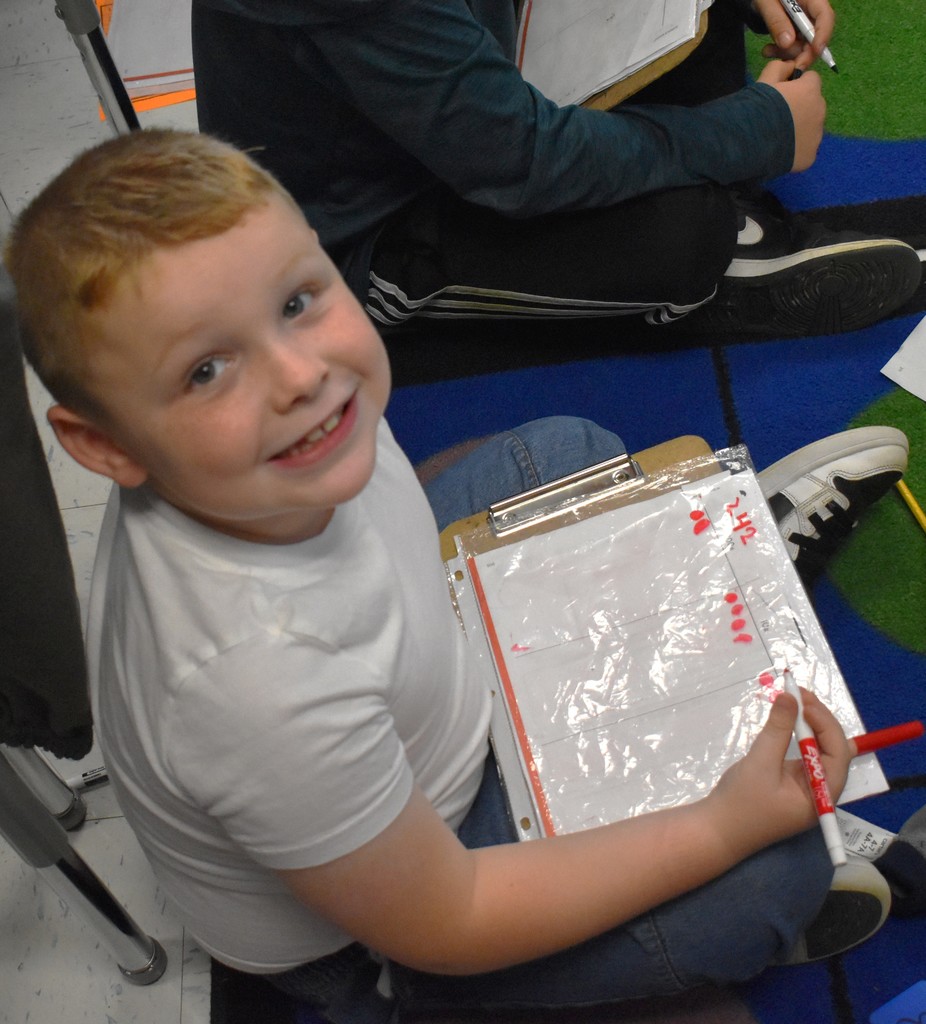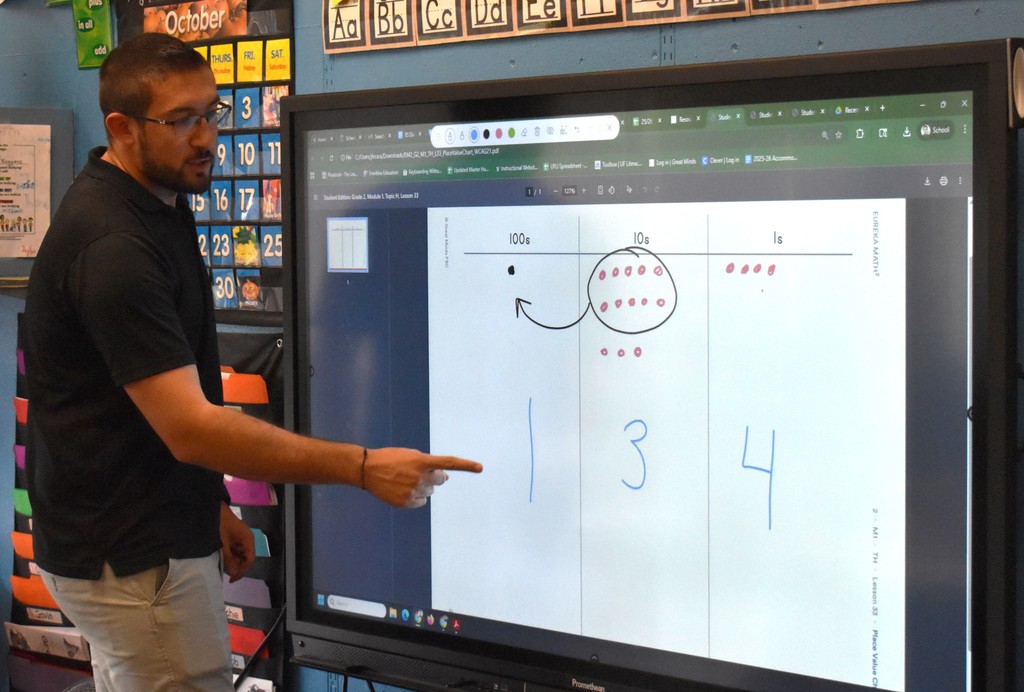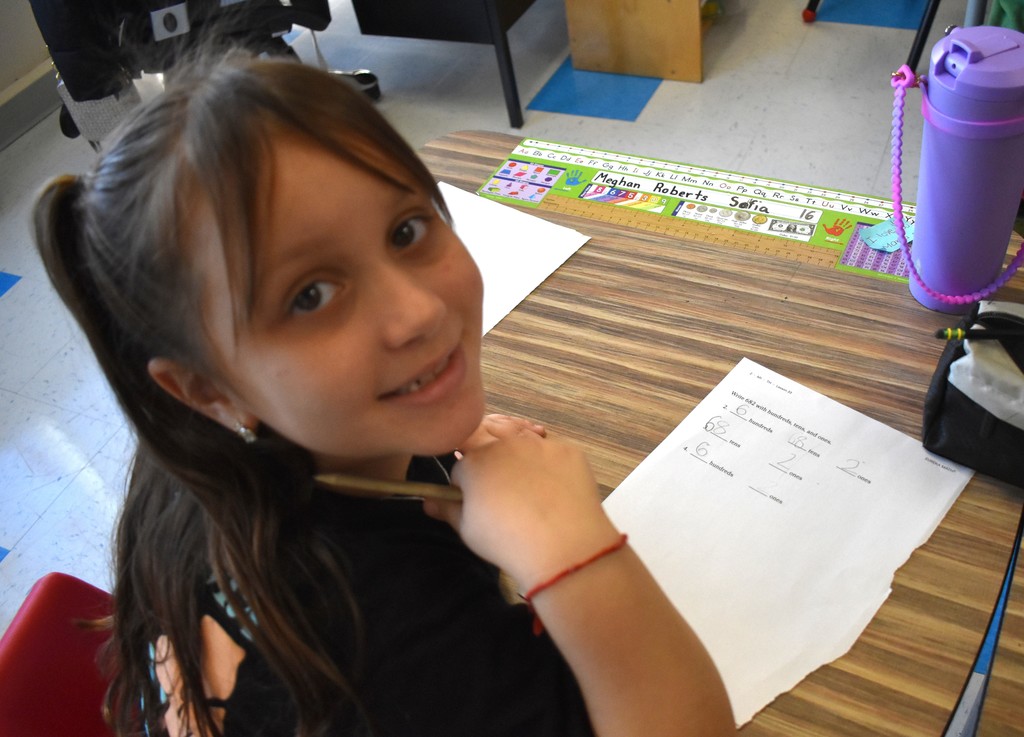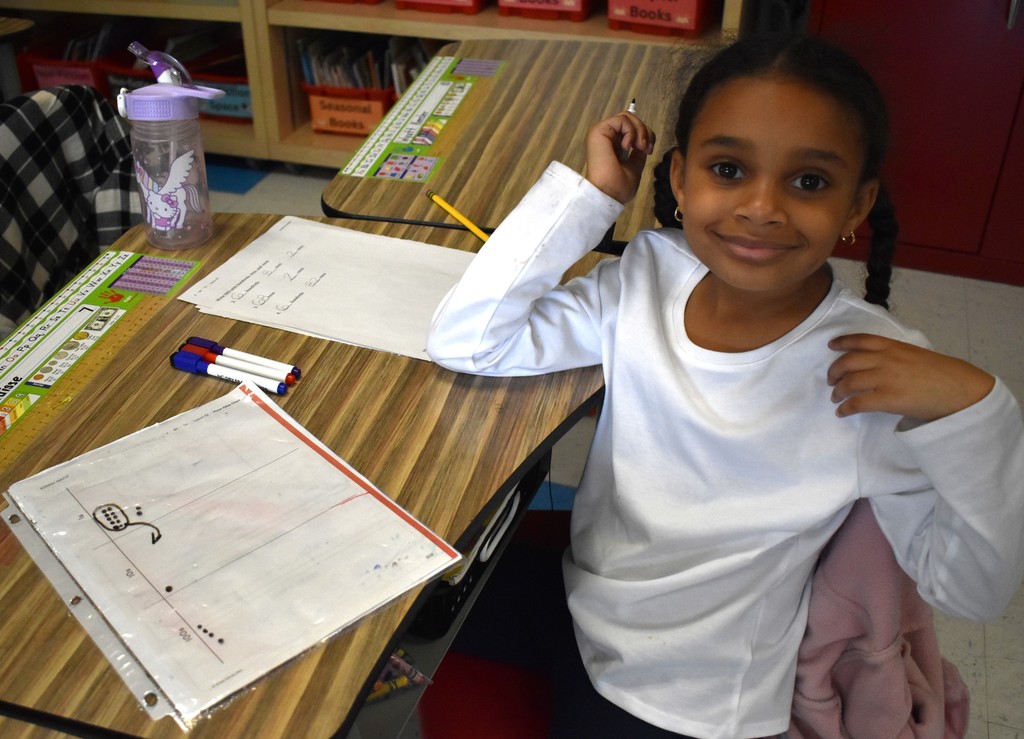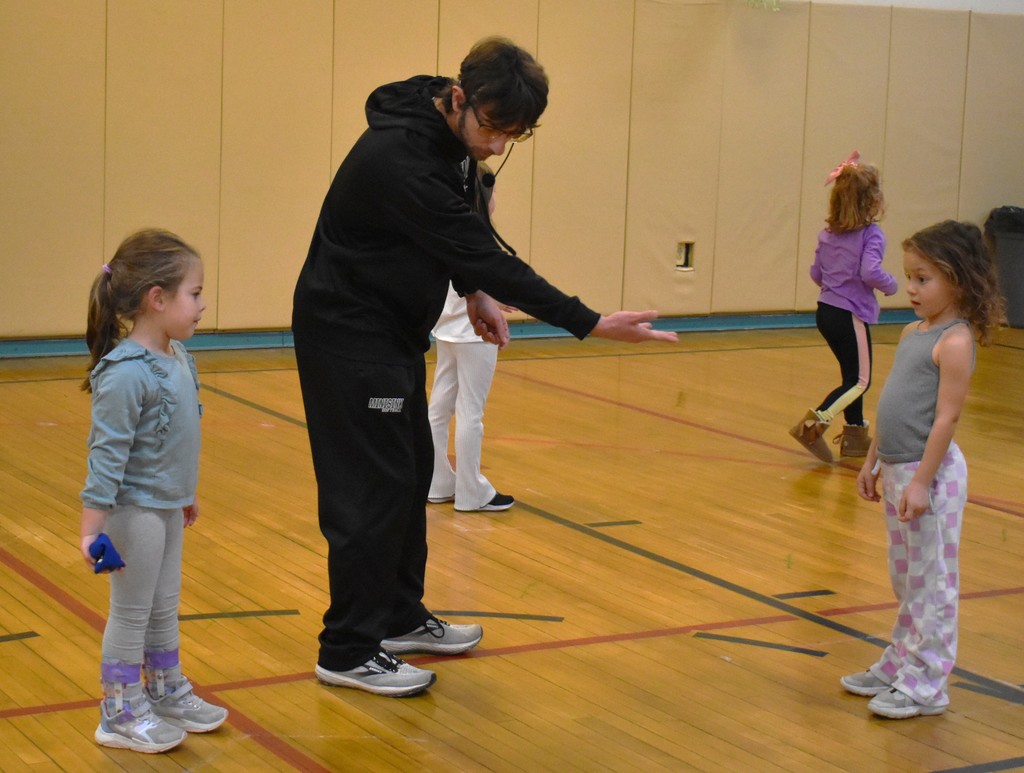
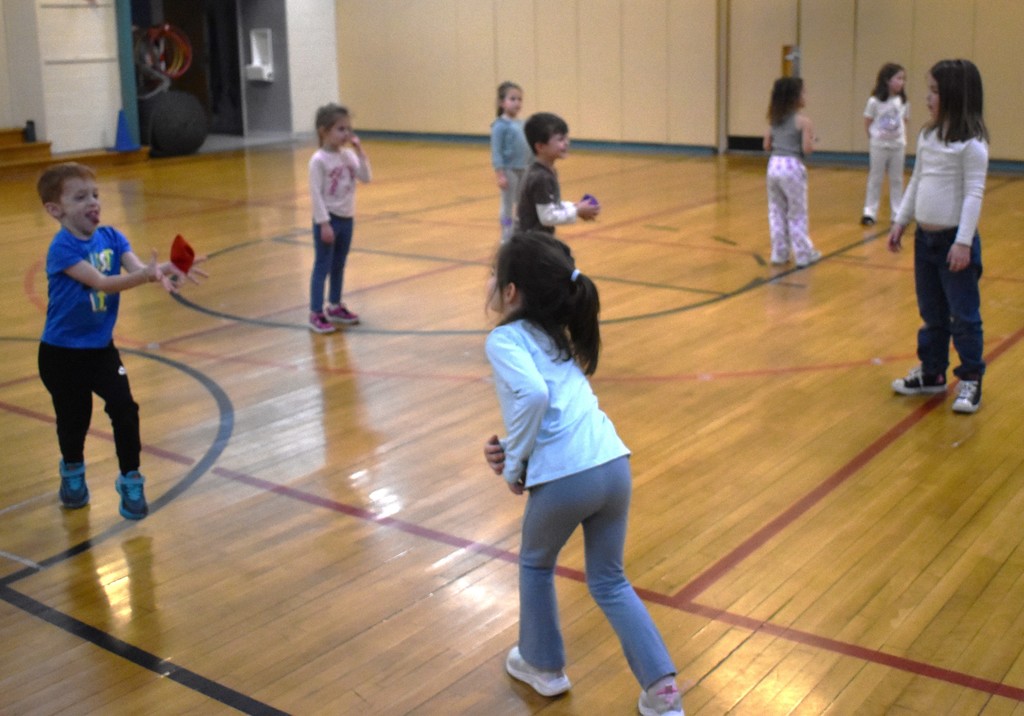
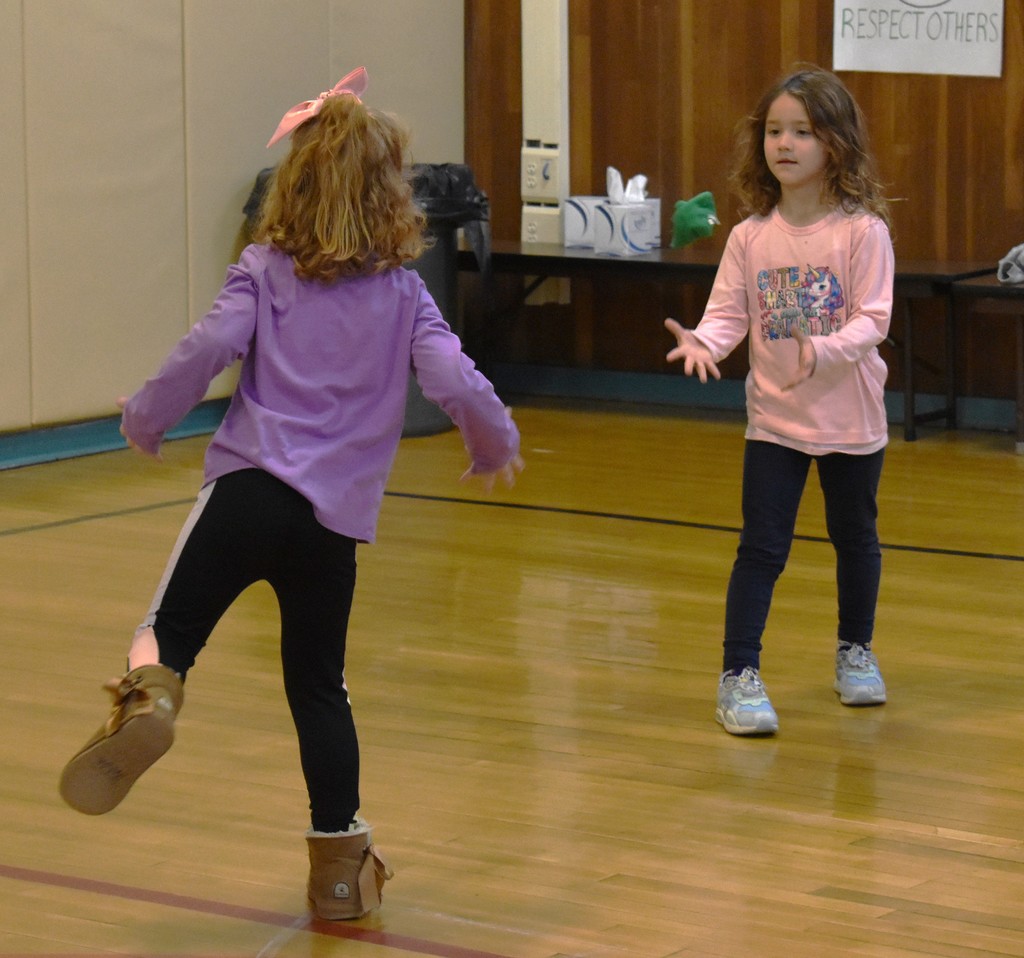
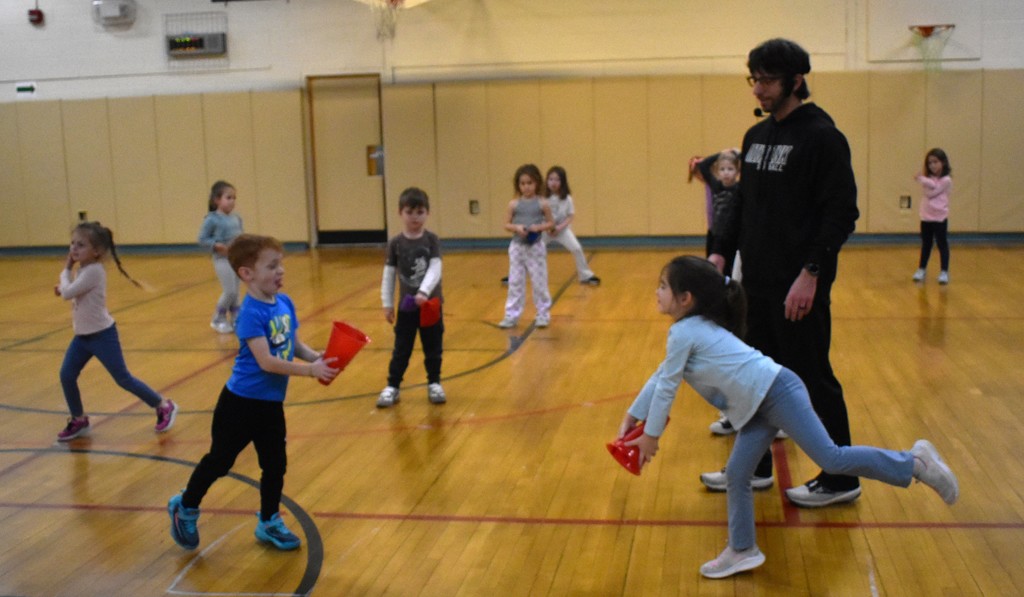
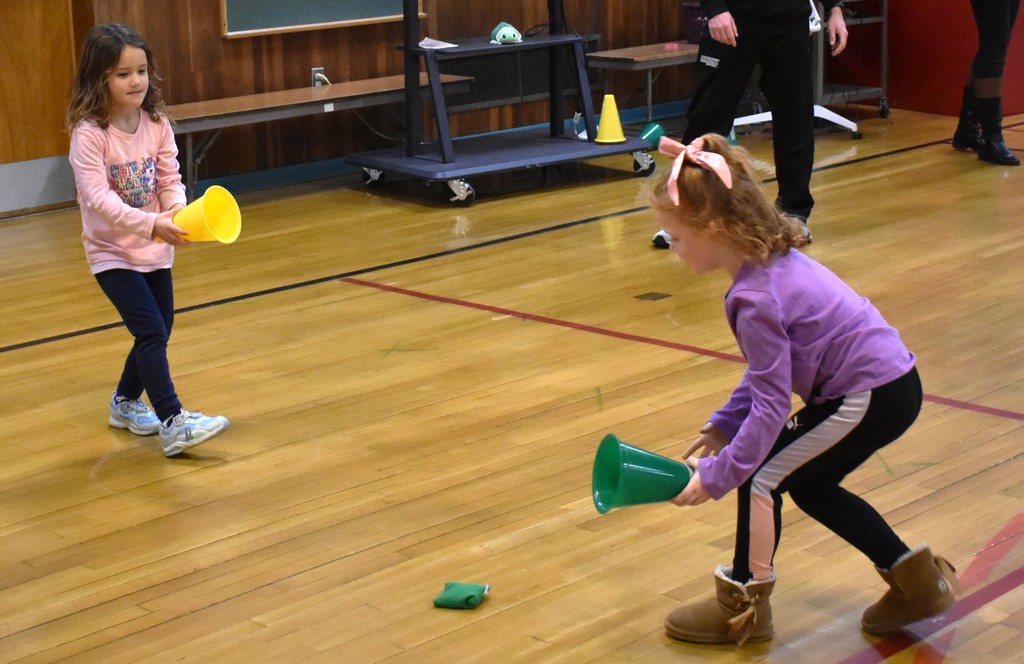
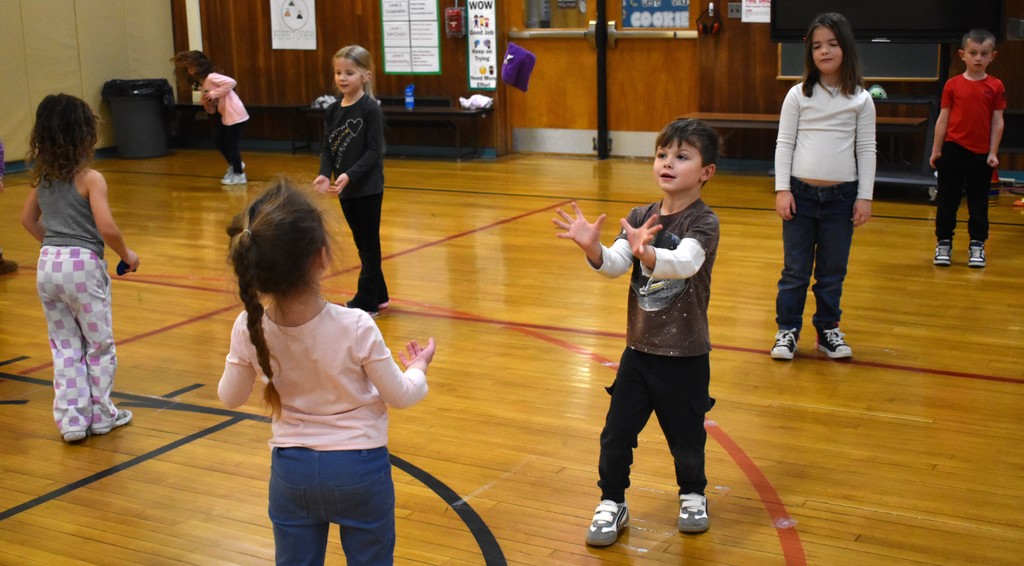
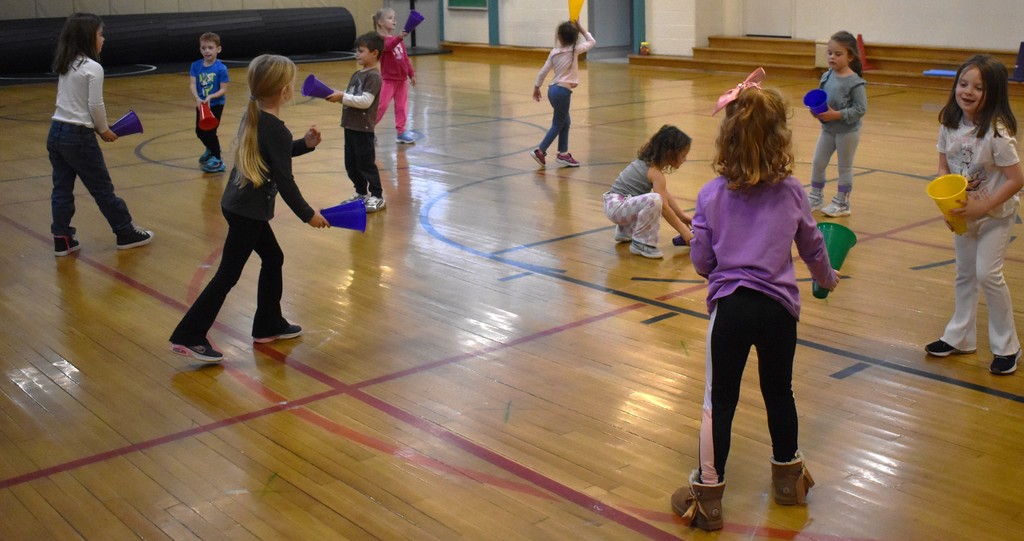
Cliff Loretto’s ES kindergarten music students have been working on a song called “Going on a Sleigh Ride Today.”
Students first warmed up with a snowflake vocal-exploration activity, following a line drawn on the Promethean Board. They matched the contour of the line by using their voices to show how it moved from high to low. Cool stuff, right?
Students also experienced the form of the song by adding body movements to each section. Later, these little ones added jingle bells and listened for musical cues to know when to play and how to position the jingle bell in relation to their bodies.
Vocal-exploration activities are important in kindergarten music classes because they build the foundational skills for students to become confident singers. They’re learning how their voices work and ear-training skills to know specific notes. Plus, they’re building listening and concentration skills in a creative and imaginative way!
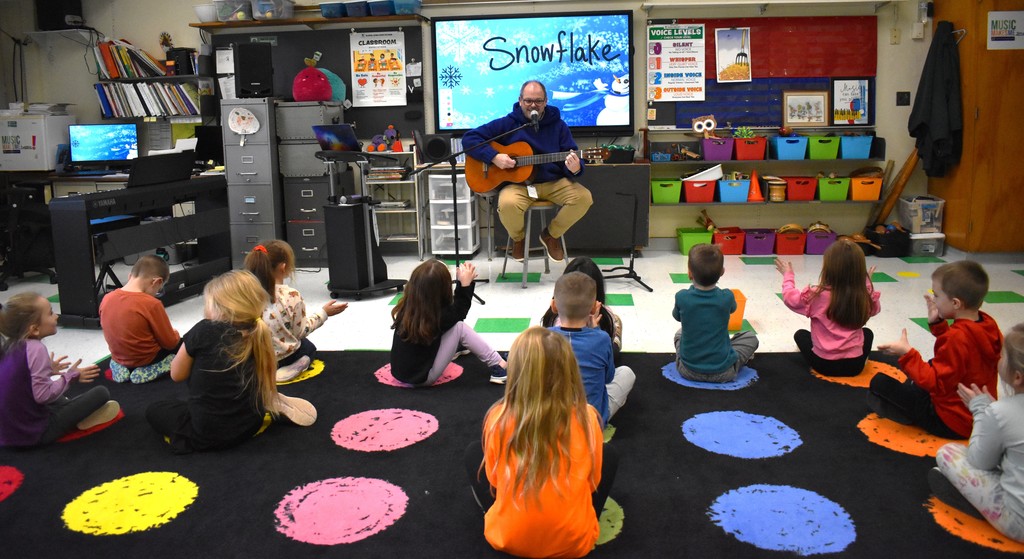
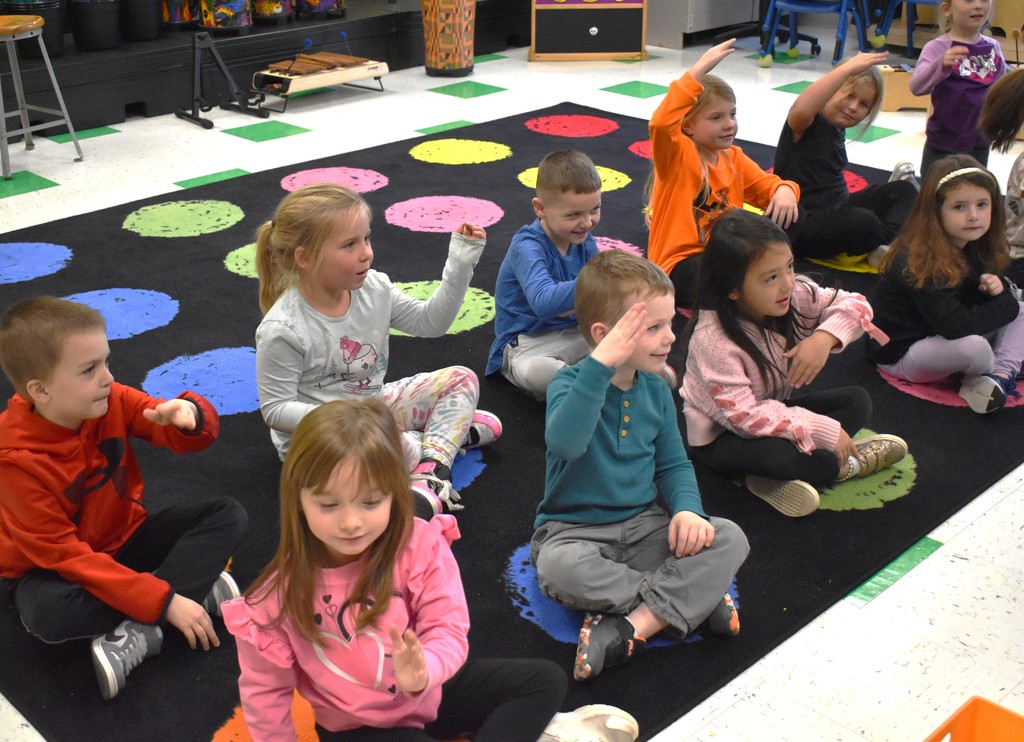
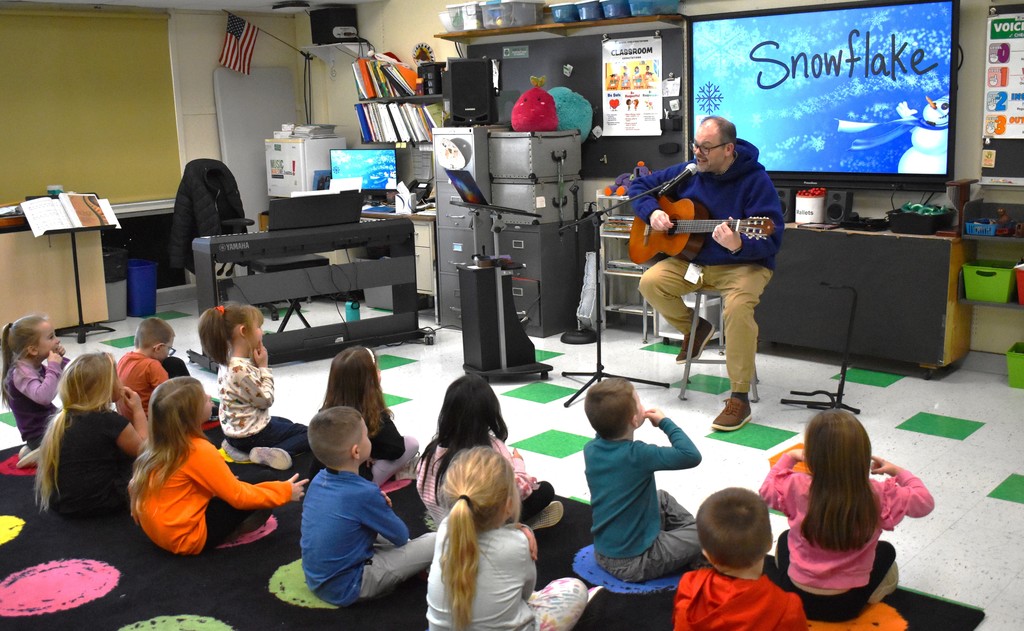
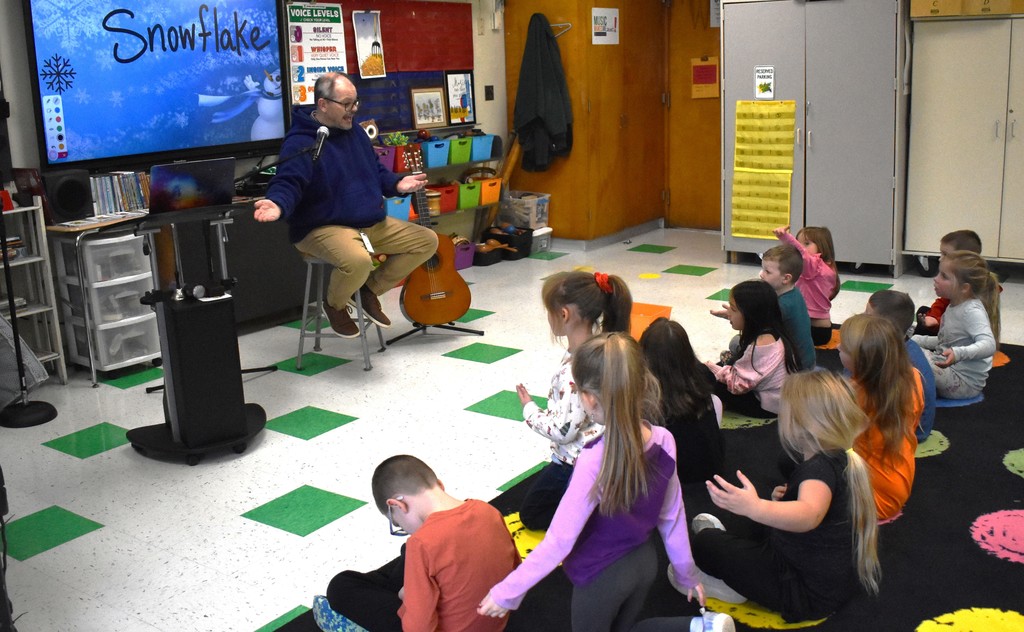
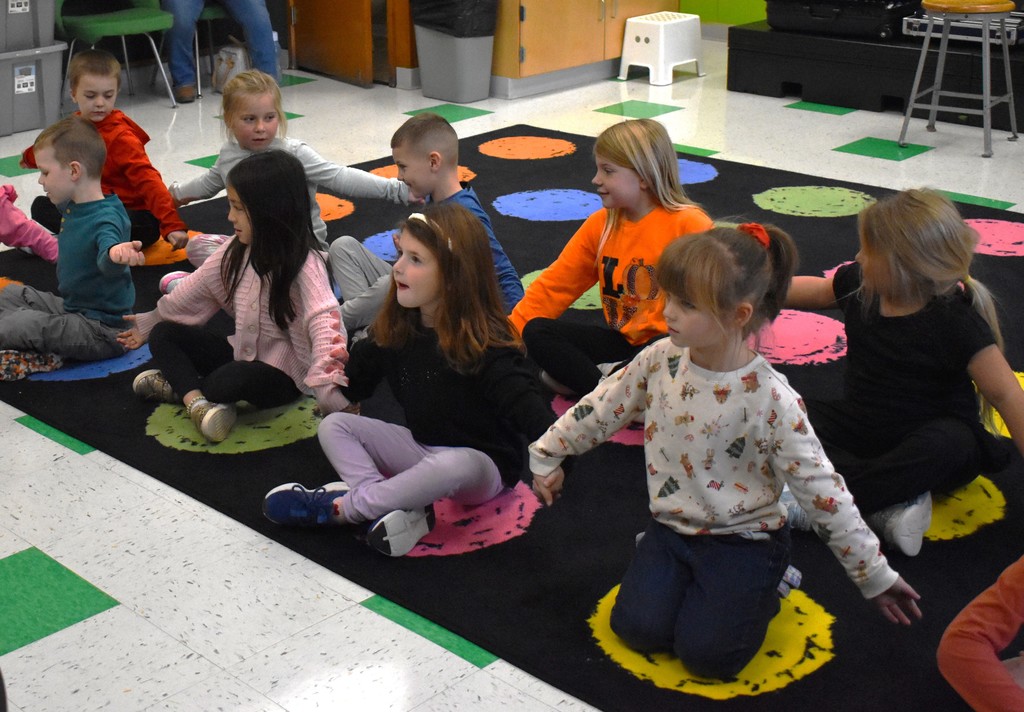
Mixed media art is simply combining two or more different types of art materials in one project. For this project, Mrs. Kaufman’s little students had a variety of fun materials to work with in this colorful project with a seasonal connection. No two snowmen are alike!
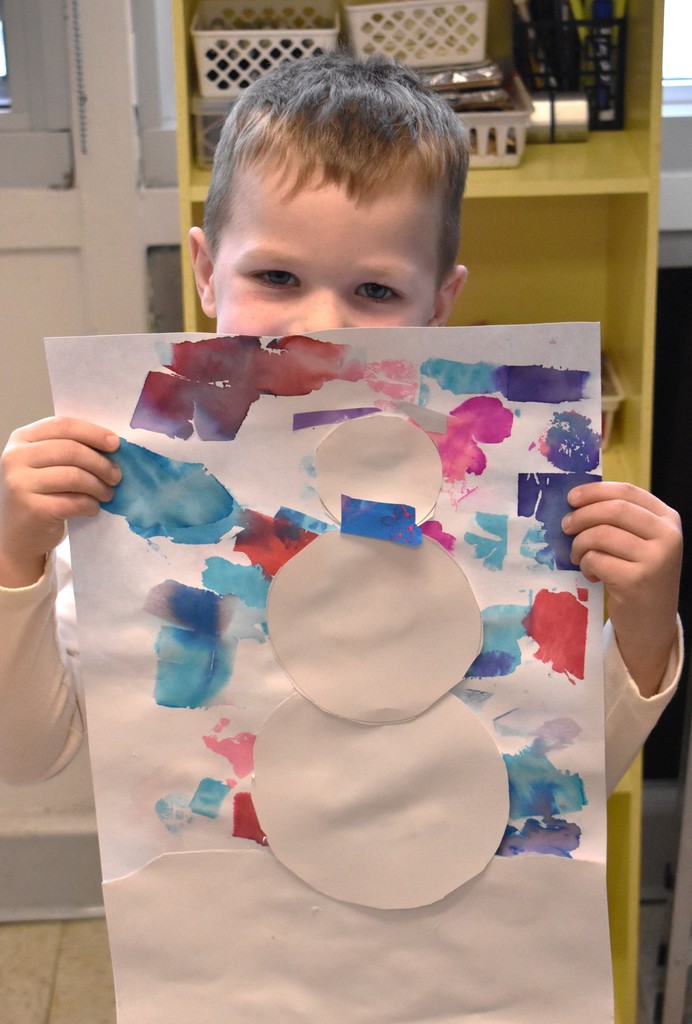
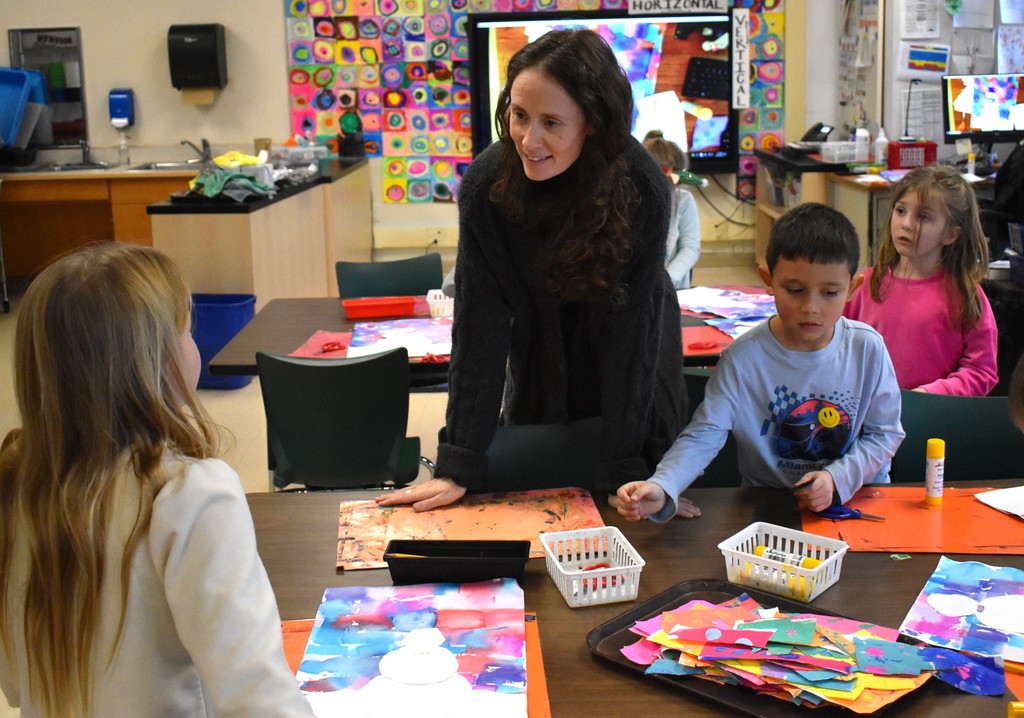
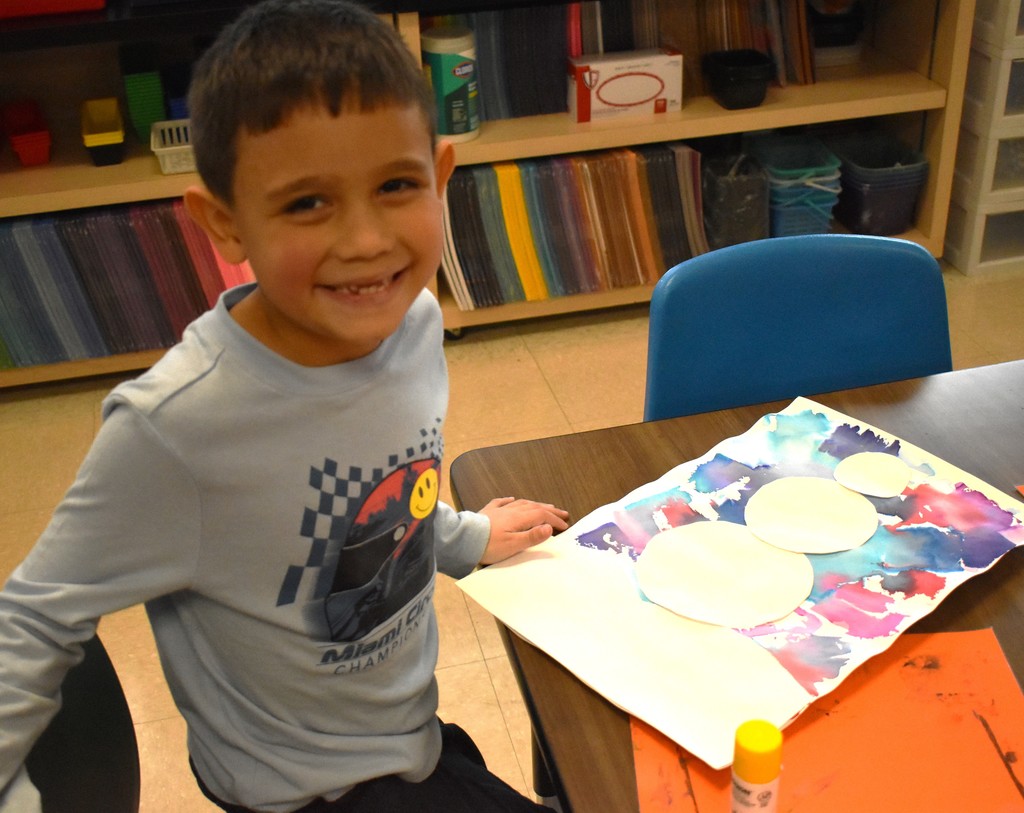
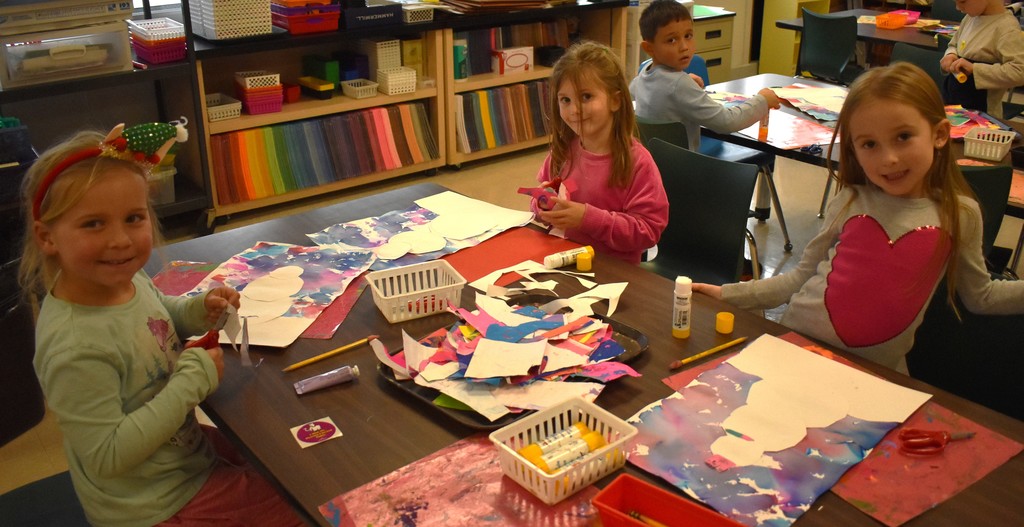
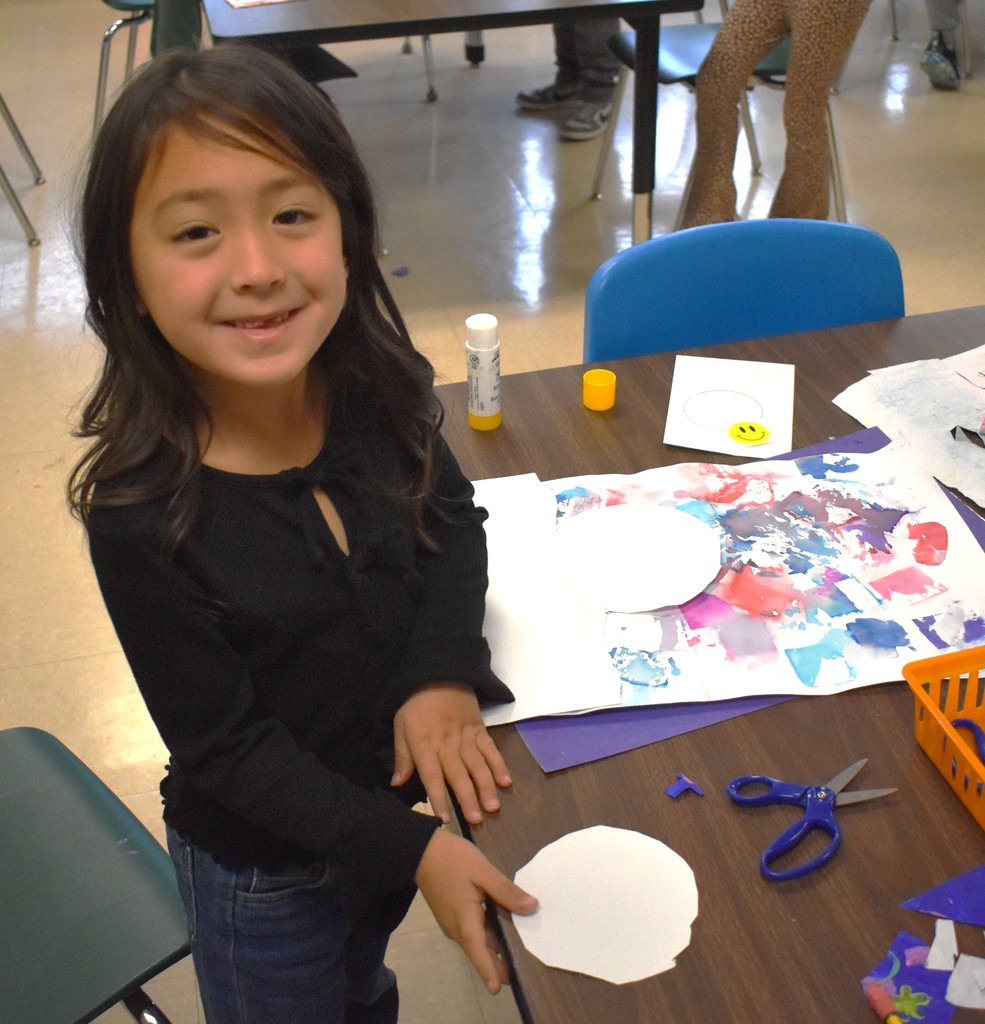
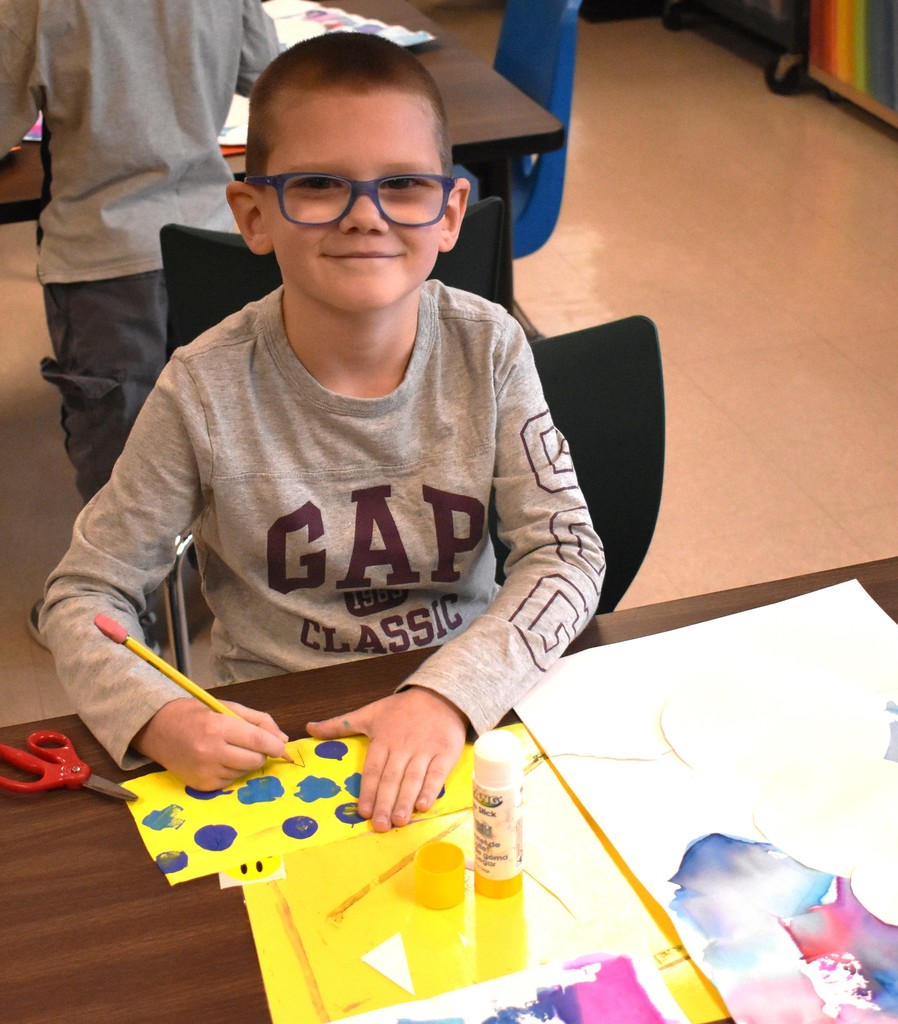
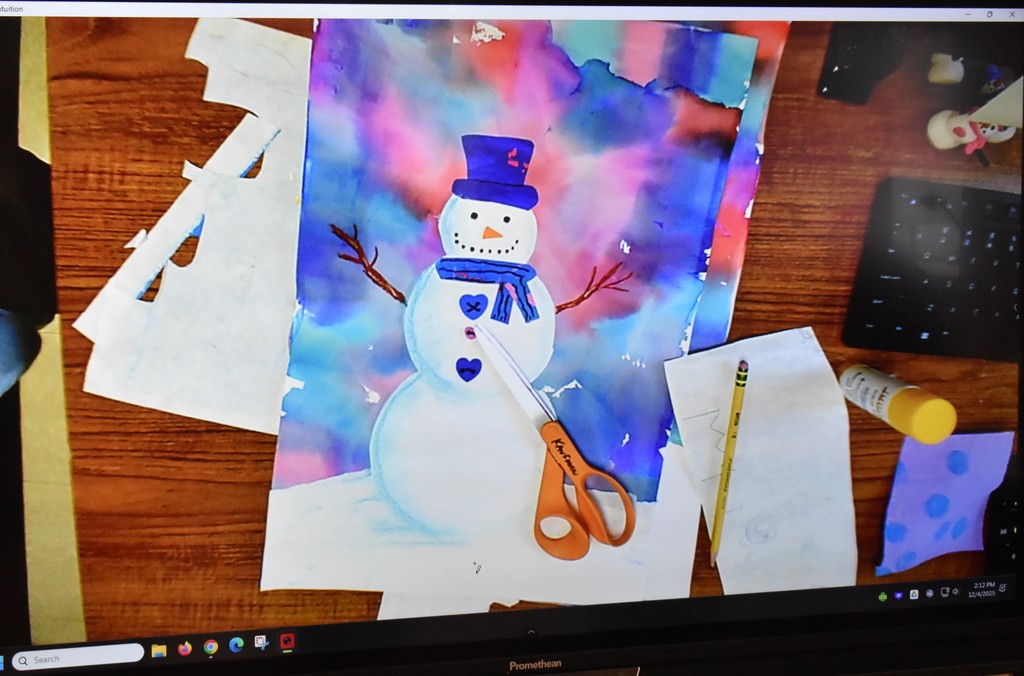
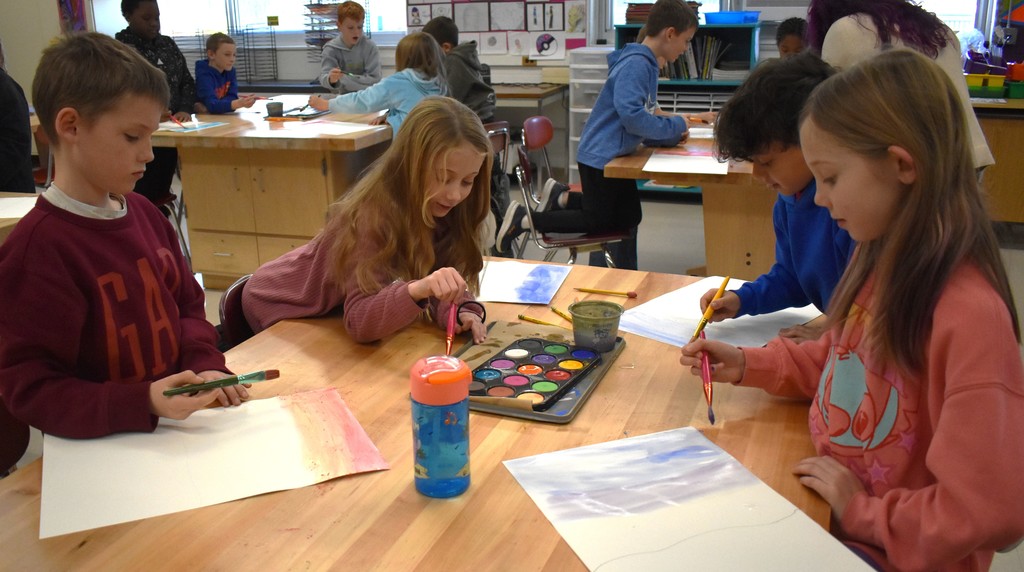
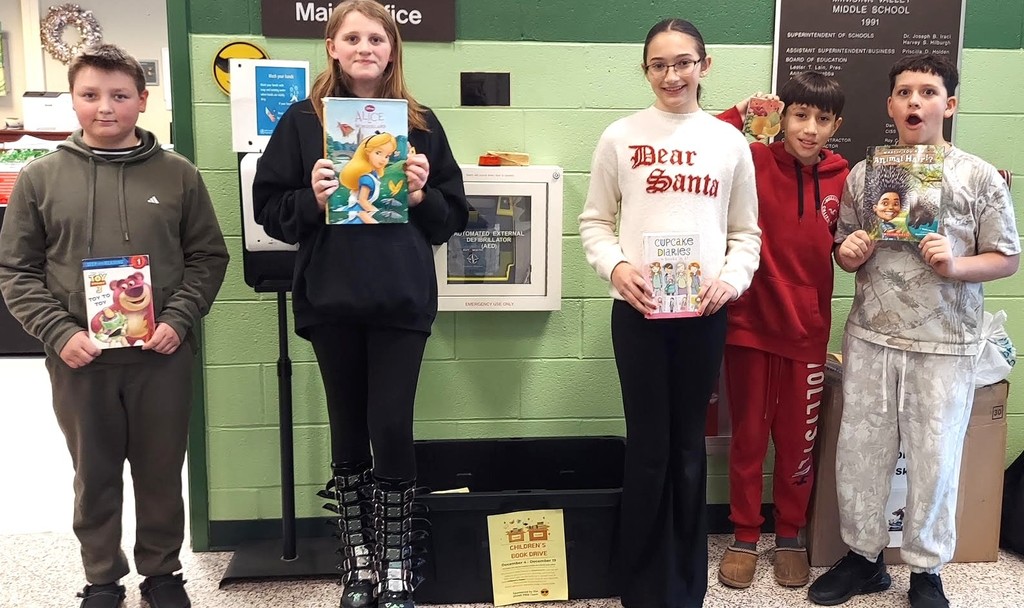
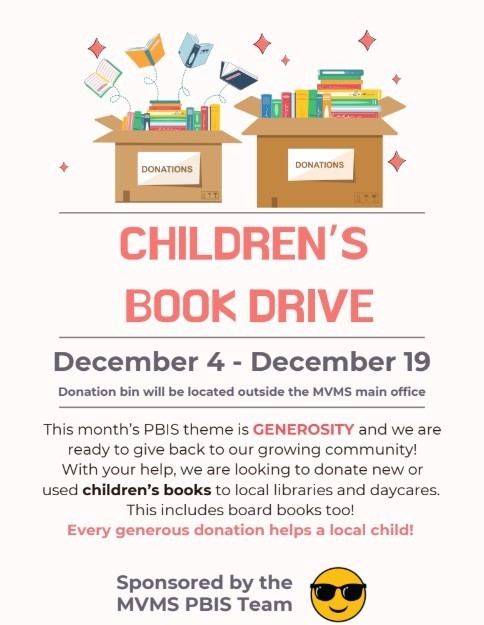
Yes, we know teams can’t “redshirt” themselves.... but we did it anyway for the 2025 Special Olympics New York Polar Bear Plunge. Next year, we will be back!
We’re grateful to officials from Special Olympics New York’s Hudson Valley chapter who visited us this past Friday, Dec. 5, to present us with the 2024 Cool School Challenge Trophy (we raised $4,022) and brought celebratory pizza for anyone from the 2024 team who was able to attend. They gratefully recognized the efforts of the 2024 team and are completely energized to work with us to get an awesome team in place for 2026.
However, the trophy didn’t stay in our possession very long. It’s now in the safekeeping of our friends at the nearby Chester School District, the Cool School Challenge winner for the 2025 plunge at The Rez in Highland Mills. Congratulations, Chester, but you better watch out: We’re coming after you in 2026 to reclaim our title!
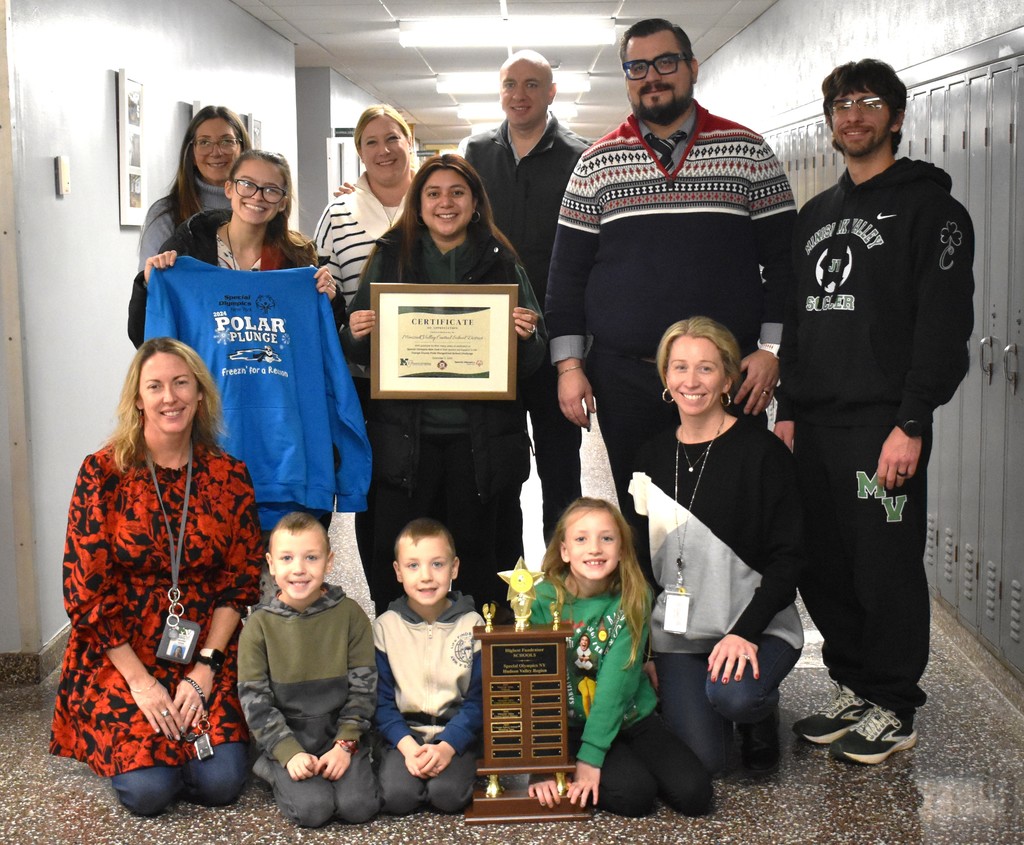
Going outdoors at school after the first snow of the season (and the first snow day of the school year) is always special! And for our littlest students, there's always learning opportunities, too!
Marjori Bobish's ES transitional kindergarteners discovered that wearing snow pants on a slide makes them move down the slide faster and fresh snow provides a very soft landing on the ground. Who knew?
Her students also learned that the sun doesn't melt the snow, it's the warmer temperatures that do! They figured out a very important truth that all snow fans eventually learn: Not all snow is good for making snowballs! While things might be different today... yesterday, students weren't able to pack the snow together while outside.
"As the children make these discoveries and communicate what they have learned with each other, they're building their early literacy skills which is the foundation for future reading and writing," said Mrs. Bobish.
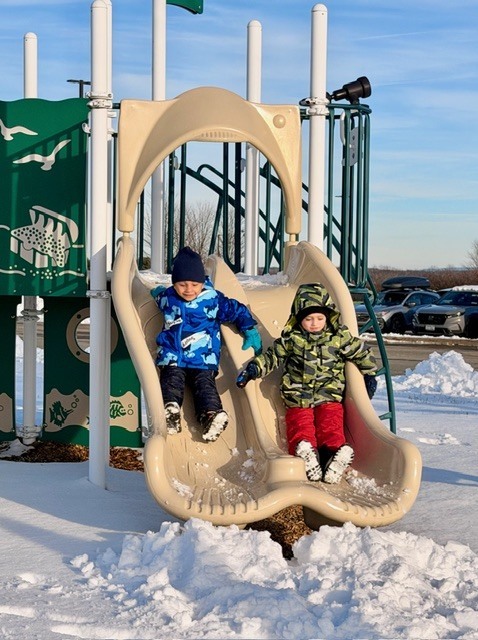
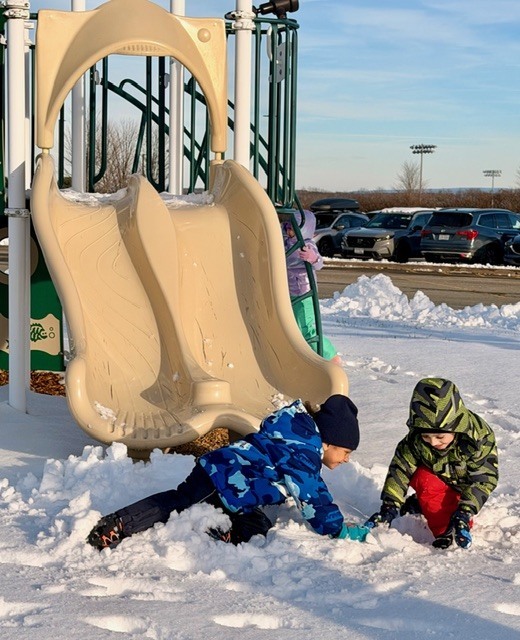
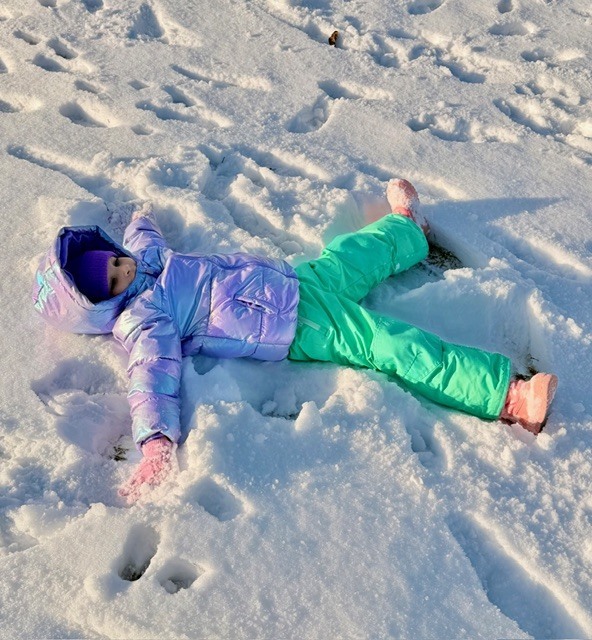
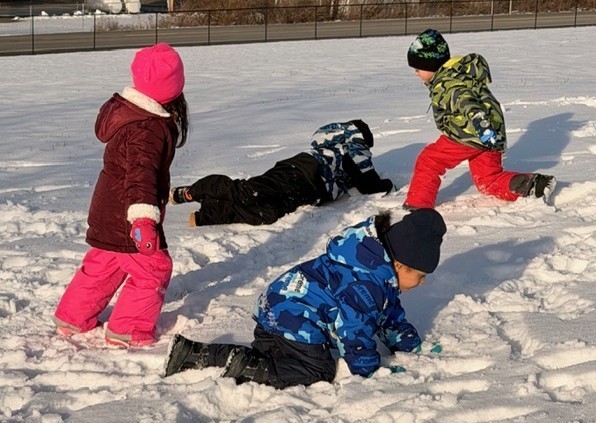
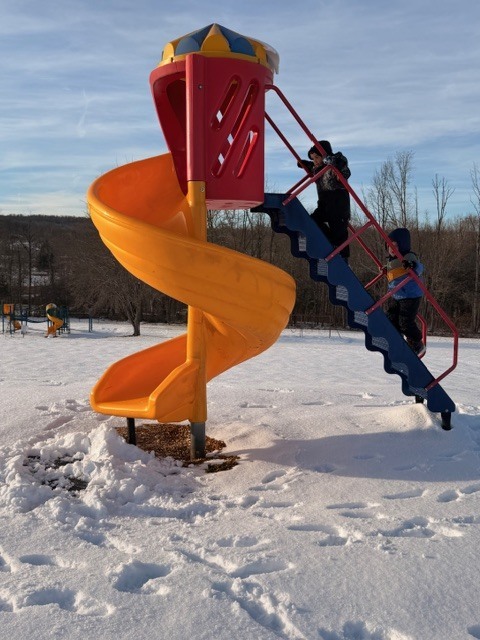
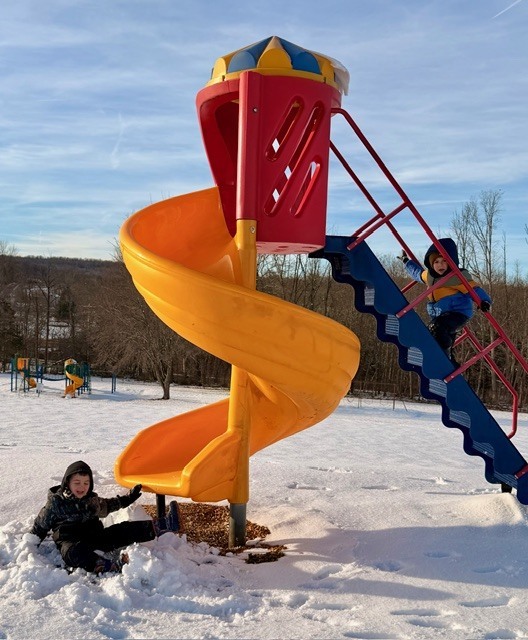
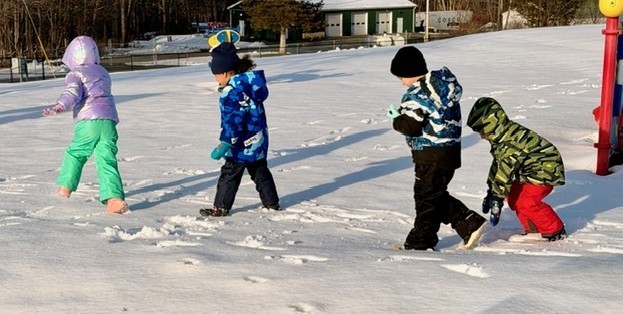
K-5 FAMILIES: Be part of the fun and merriment for a great cause! Pull out your student's finest Grinchy (or green) attire and sign up to attend a special fundraiser showing of “The Grinch” on Friday, Dec. 12, beginning at 5:30 p.m. at the ES/IS Auditorium! The evening runs until 8:30 p.m. so you’ll even have a chance to grab a bite to eat or do some holiday shopping while your student is having a great time!
The ES PTO and High School’s Youth Against Cancer (YAC) Club are hosting this fun “Kids Night Out” evening! Cost is $10 per student, with snacks, a souvenir and a very special visit from the Grinch himself! Don’t miss out!
All proceeds will benefit the good work of the ES PTO and the YAC Club. Sign-up via this link: https://docs.google.com/forms/d/e/1FAIpQLSfsKNmEfJdvoBl6ZMtFJi6pvYE6LSWbf23qvUHGJbIG78tuUQ/viewform
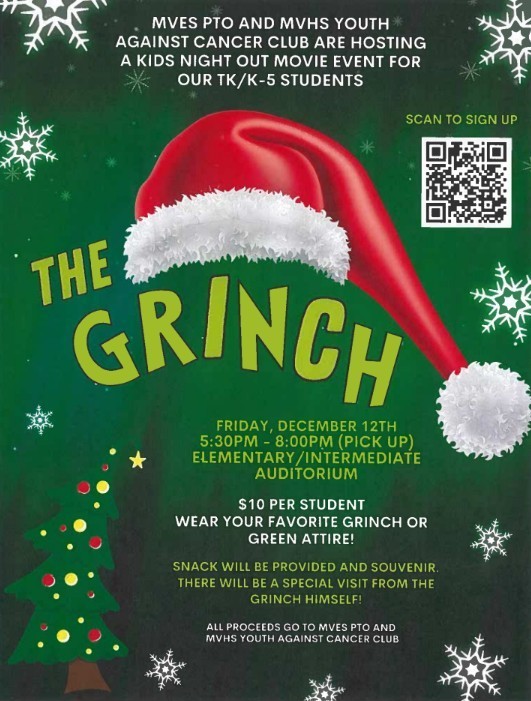
Working in small groups, students have been practicing the concepts covered in their daily lessons. Through these math-based games, students are building their automaticity and fluency with addition, subtraction, and making partners of 10. The hands-on practice helps reinforce student understanding while keeping learning fun and interactive. Teachers use this to help students build strong addition and subtraction skills, because knowing which numbers make 10 makes math faster and easier.
Do you know all the partners of 10? We’ll help:
• 0 and 10
• 1 and 9
• 2 and 8
• 3 and 7
• 4 and 6
• 5 and 5
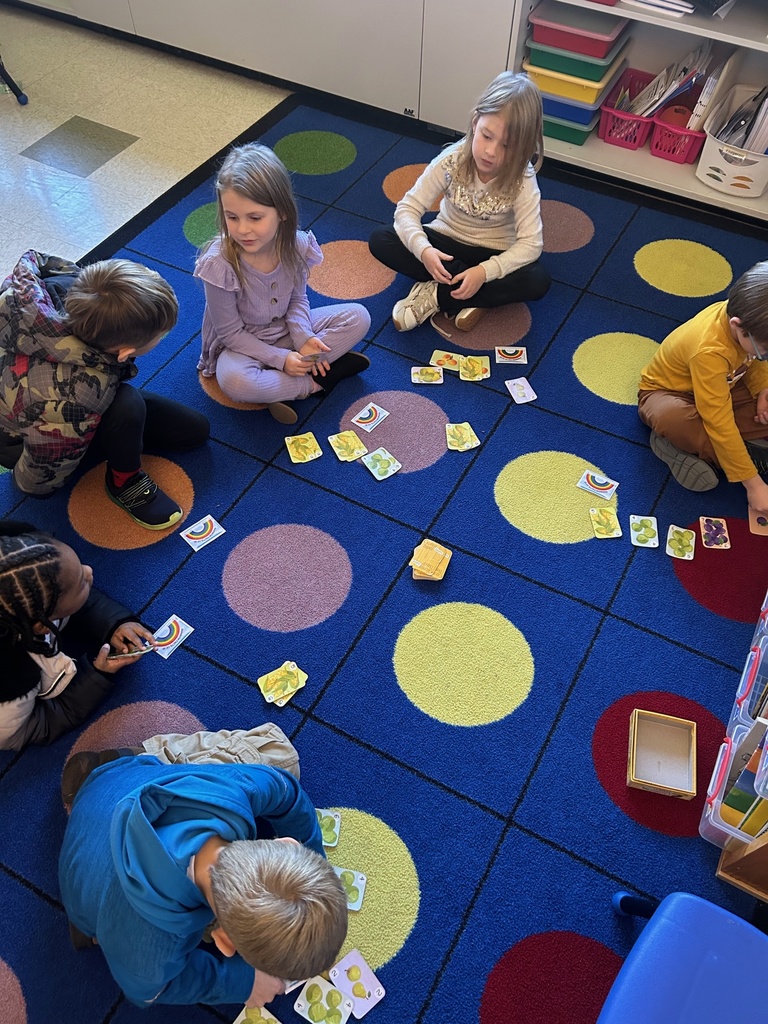
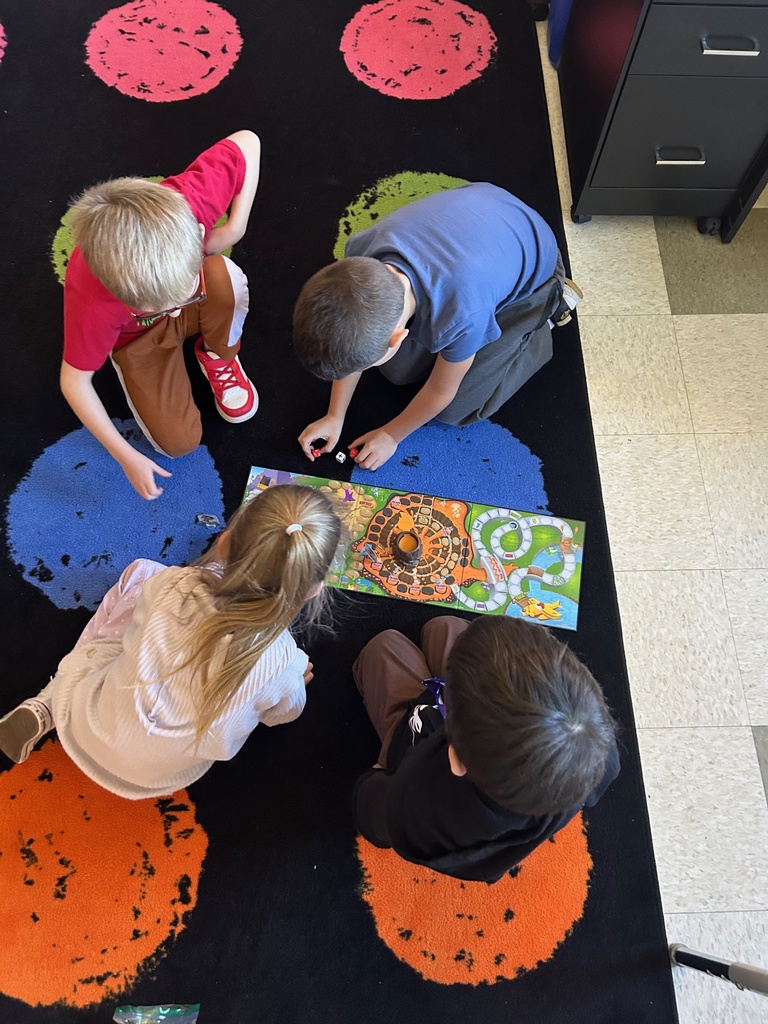
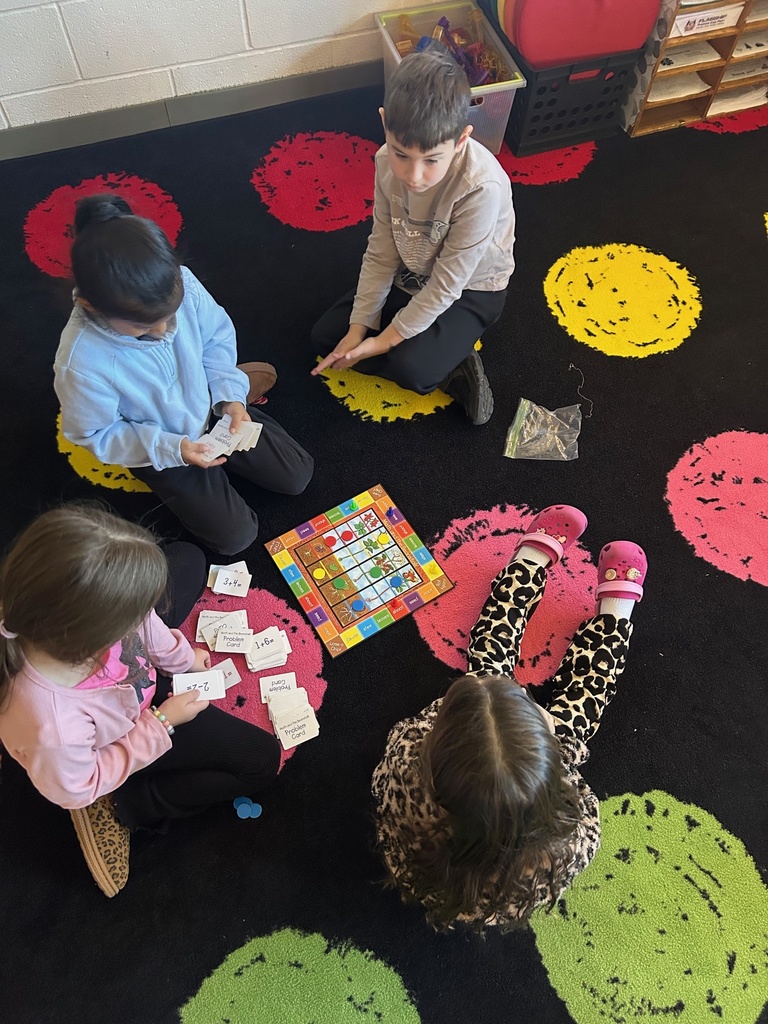
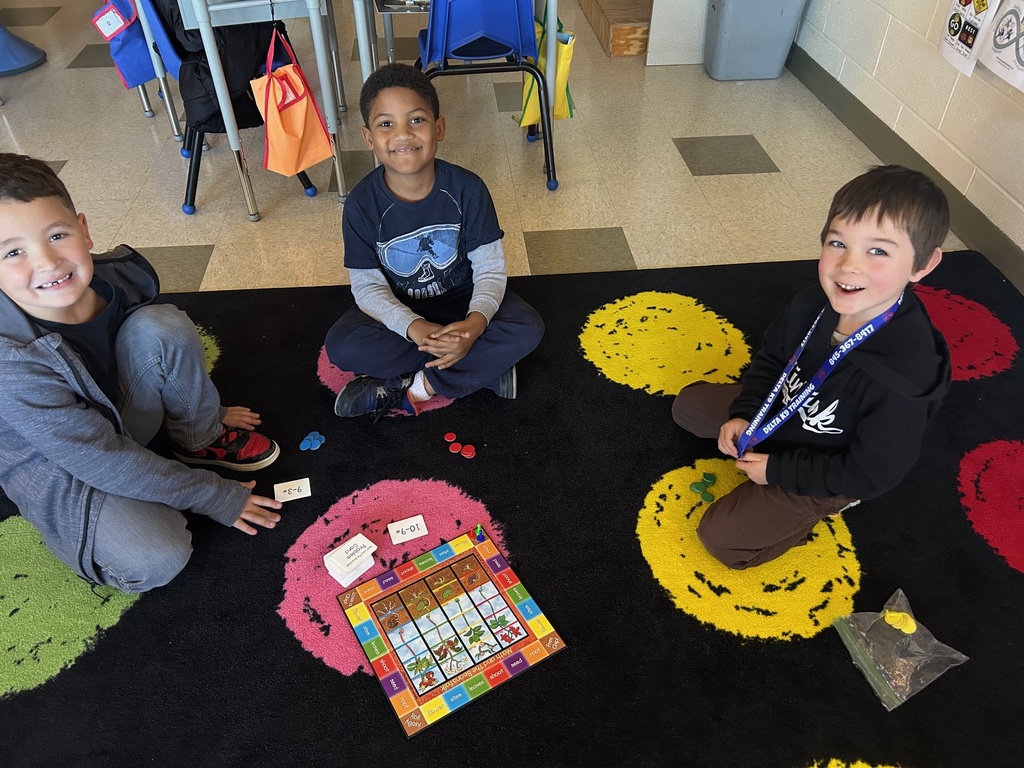
The Elementary School’s kindergarten team took the ‘turkey trot” concept and gave it a kindergarten seasonal spin yesterday, Nov. 25, with its version called a ‘turkey K-trot.’ Students "trotted" --- rather, walked --- to the classrooms of their peers for special Thanksgiving fun, courtesy of all the kindergarten faculty! They took part in turkey yoga (there is such a thing!), a harvest sorting relay, “turkey waddle” games, a thankful circle, story time, blocks and gourd table building….all enjoyable activities tied to the upcoming Thanksgiving holiday !
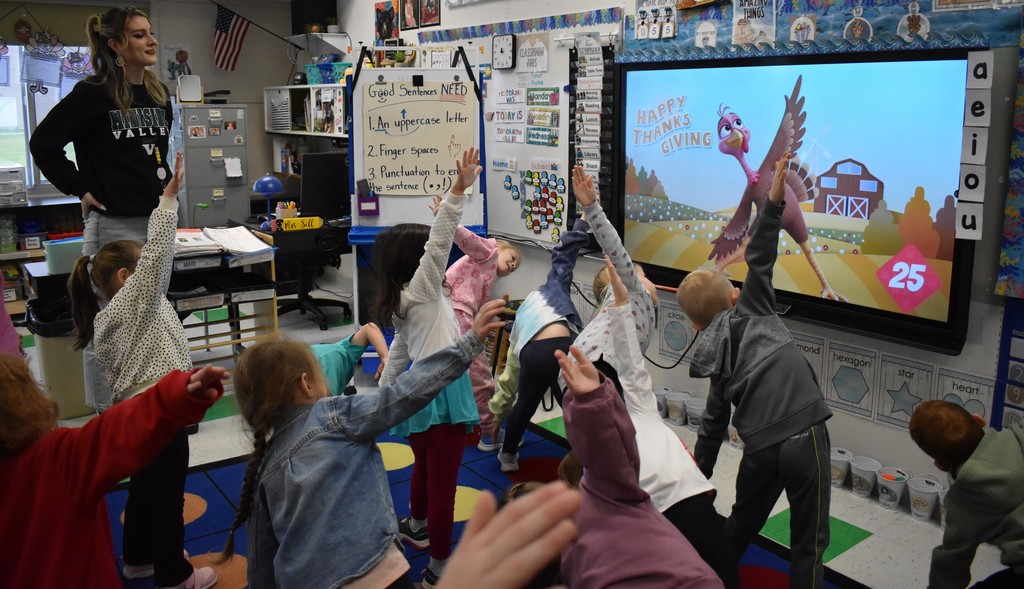
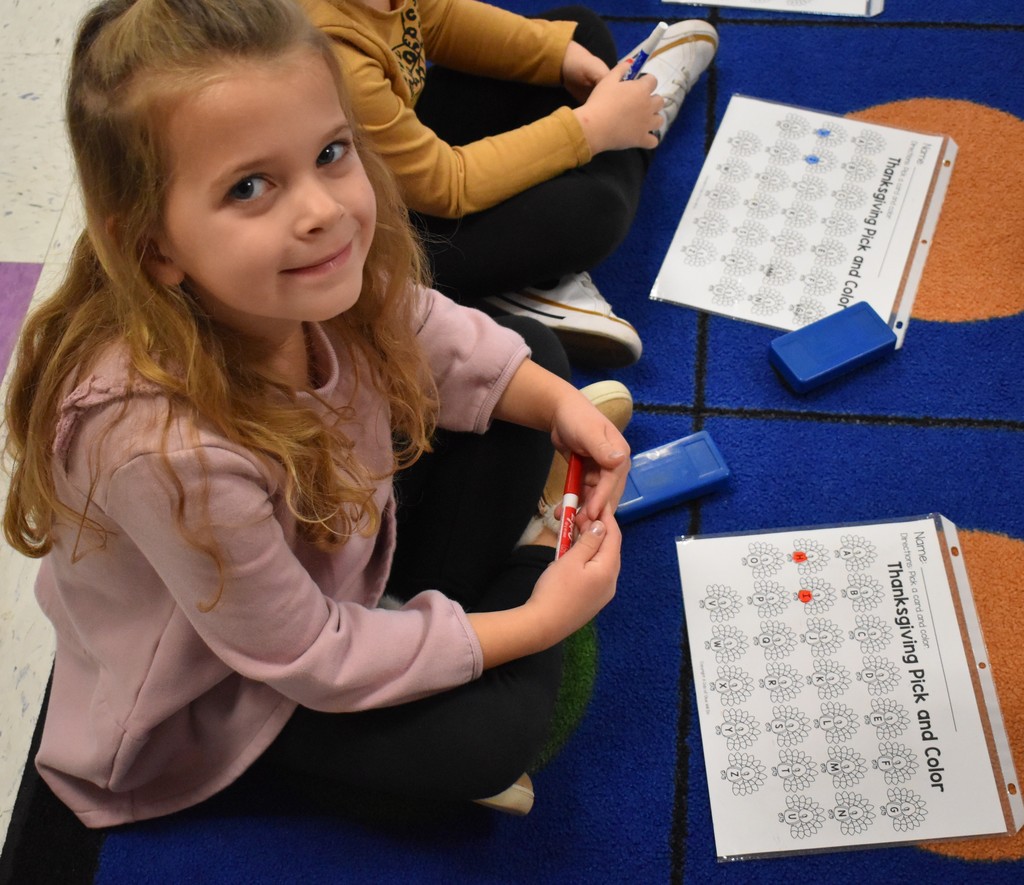
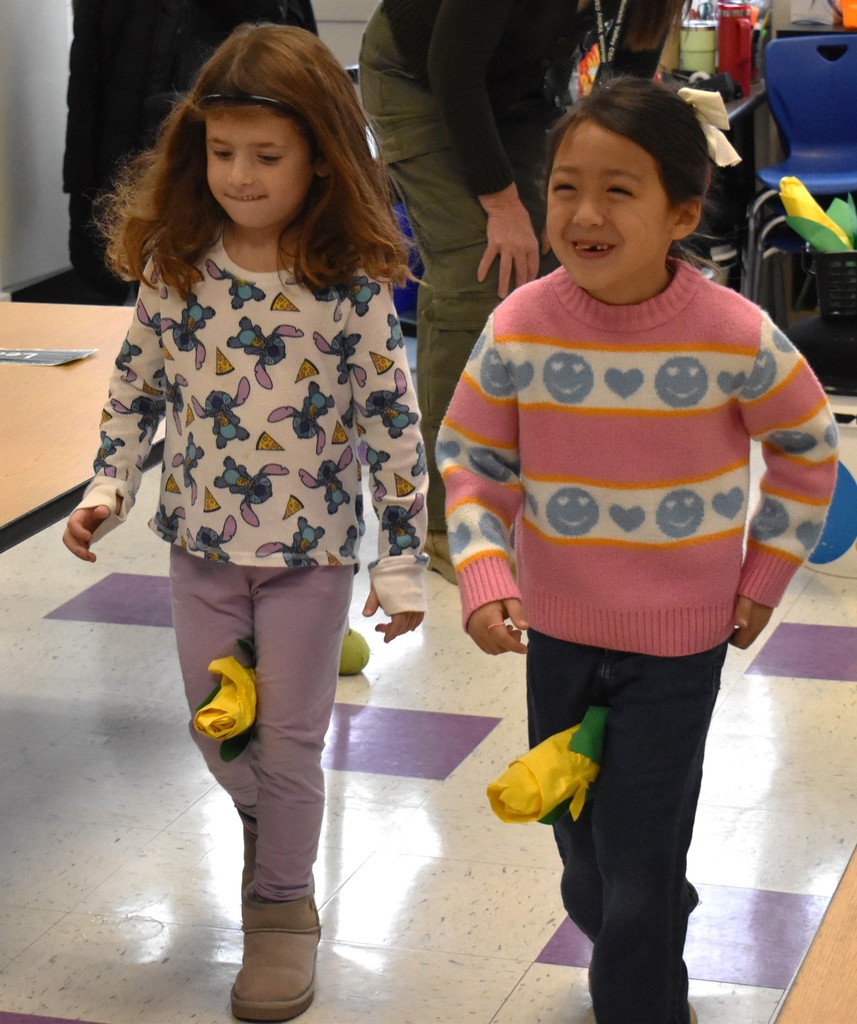

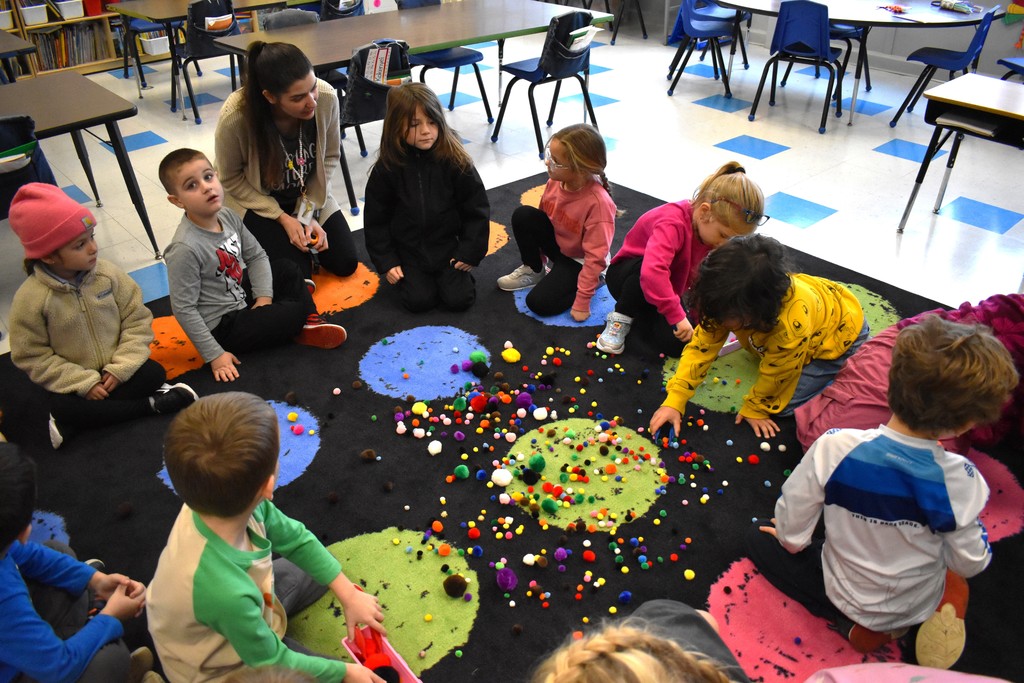
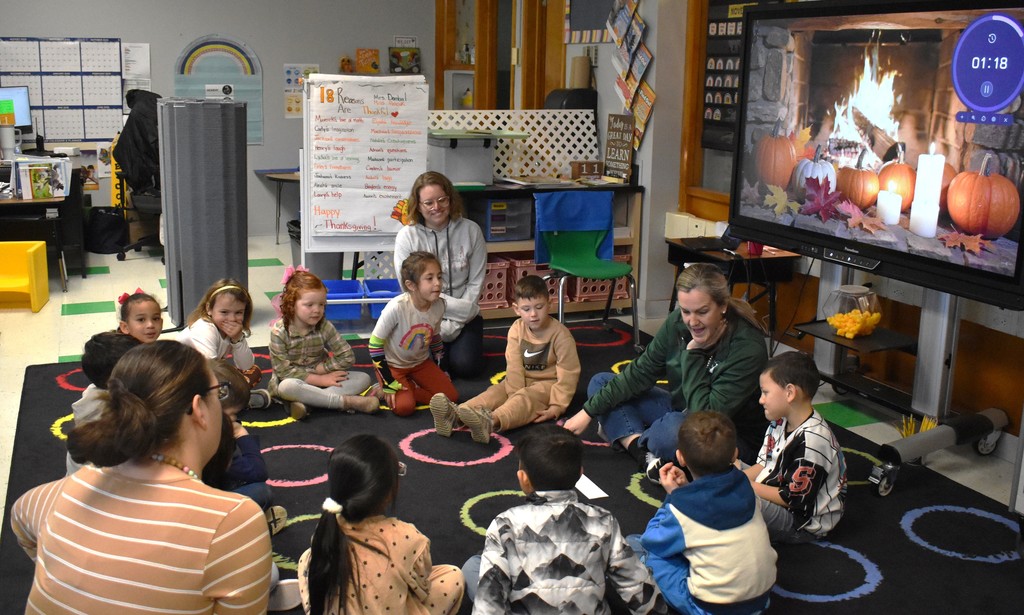
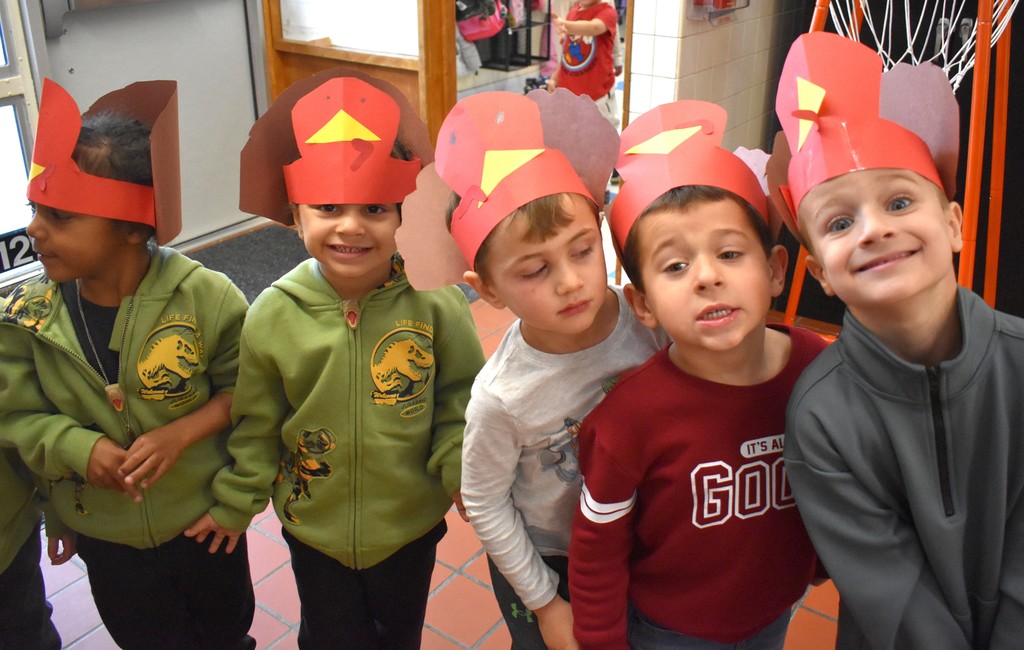

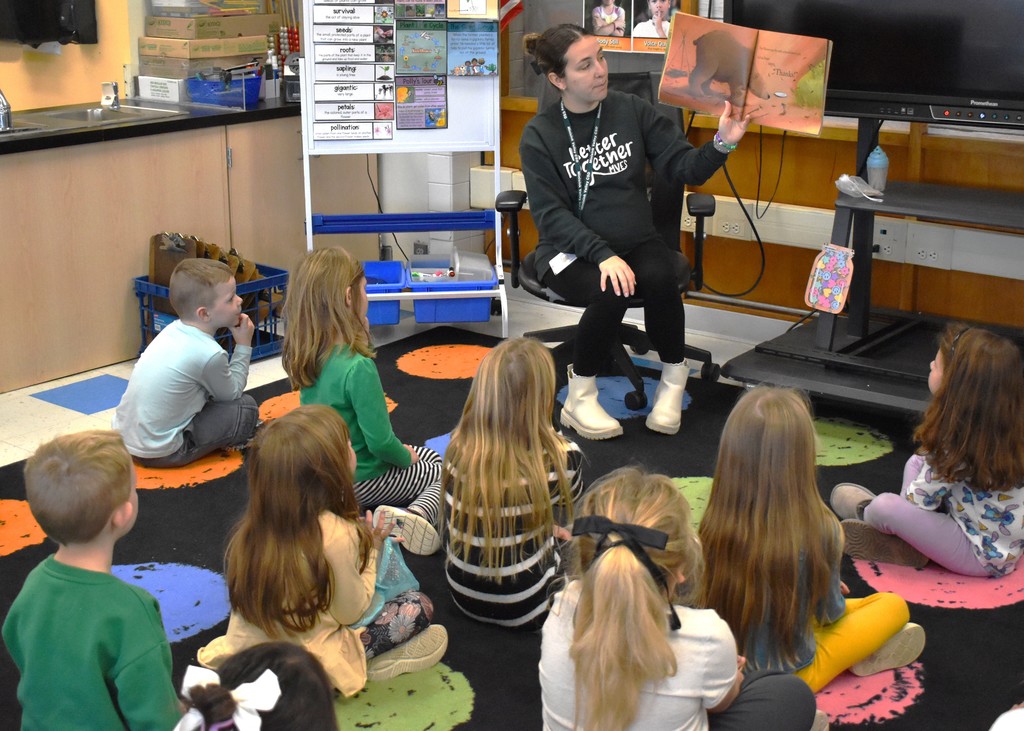
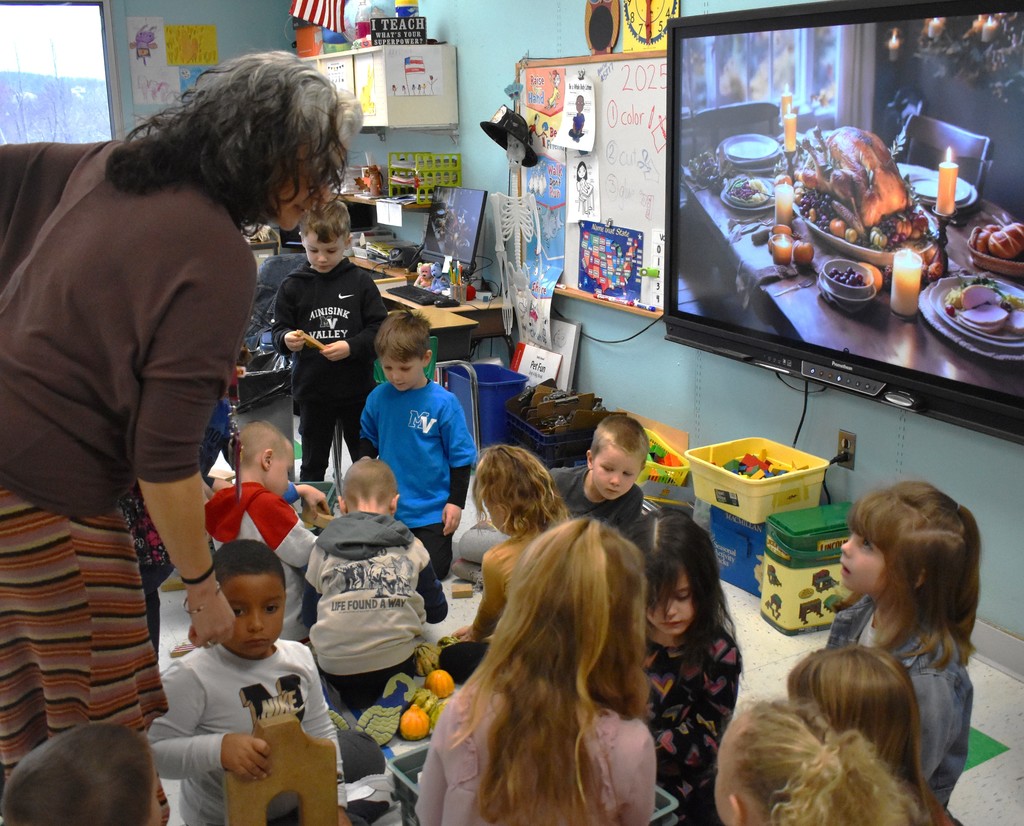
It's important for kindergarteners to understand gratitude because it builds a foundation for empathy, happiness and emotional well-being by teaching these little ones the importance of recognizing and appreciating the kindness of others and the positive aspects of their own lives. Long term, this skill helps them develop into more resilient, less self-centered adults and helps in their social and academic performance. Activities like this are part of the school's and district's ongong character education curriculum.
See more photos on the district's Facebook page!
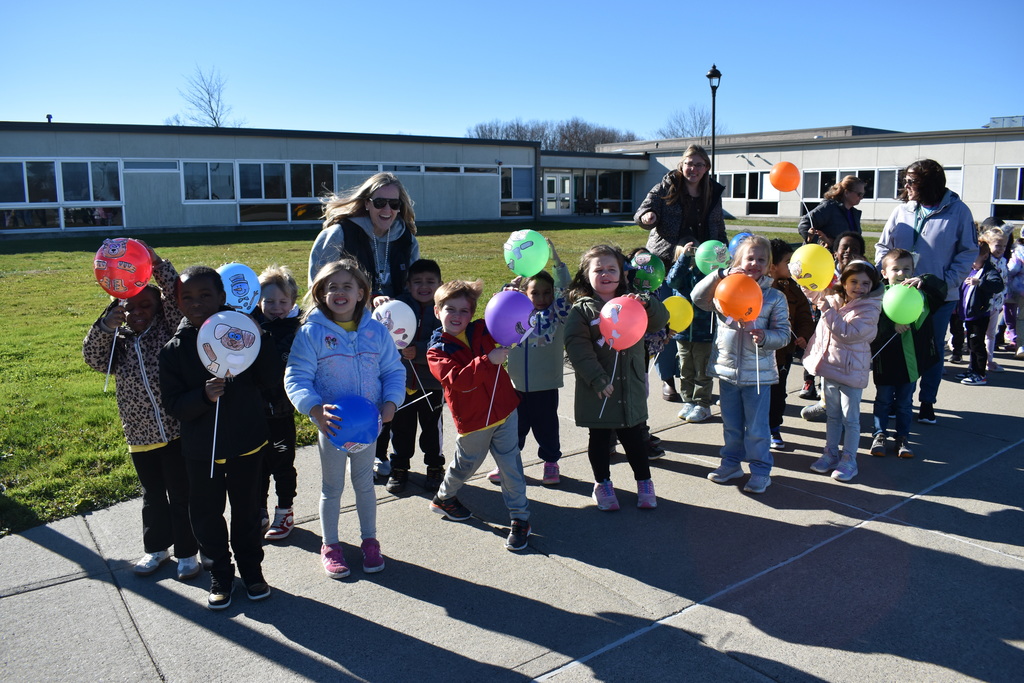
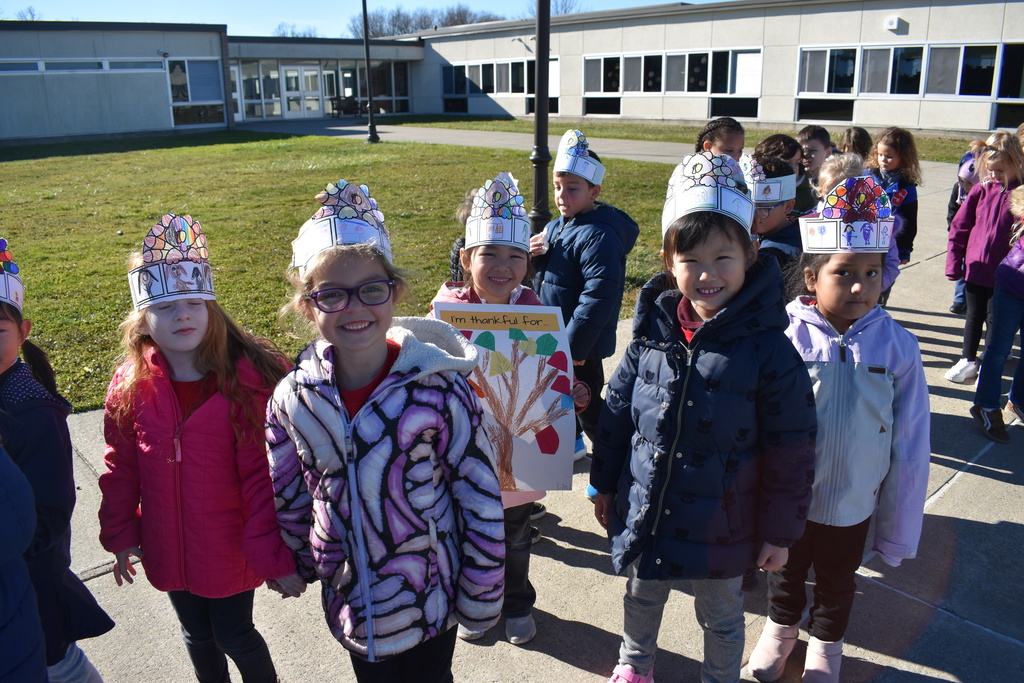
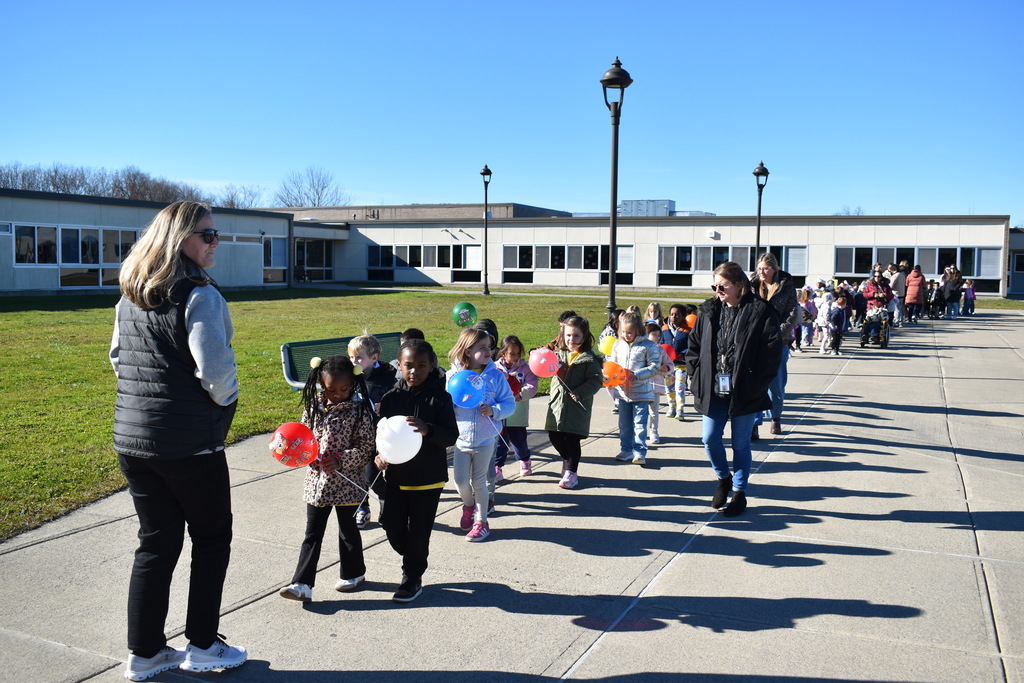
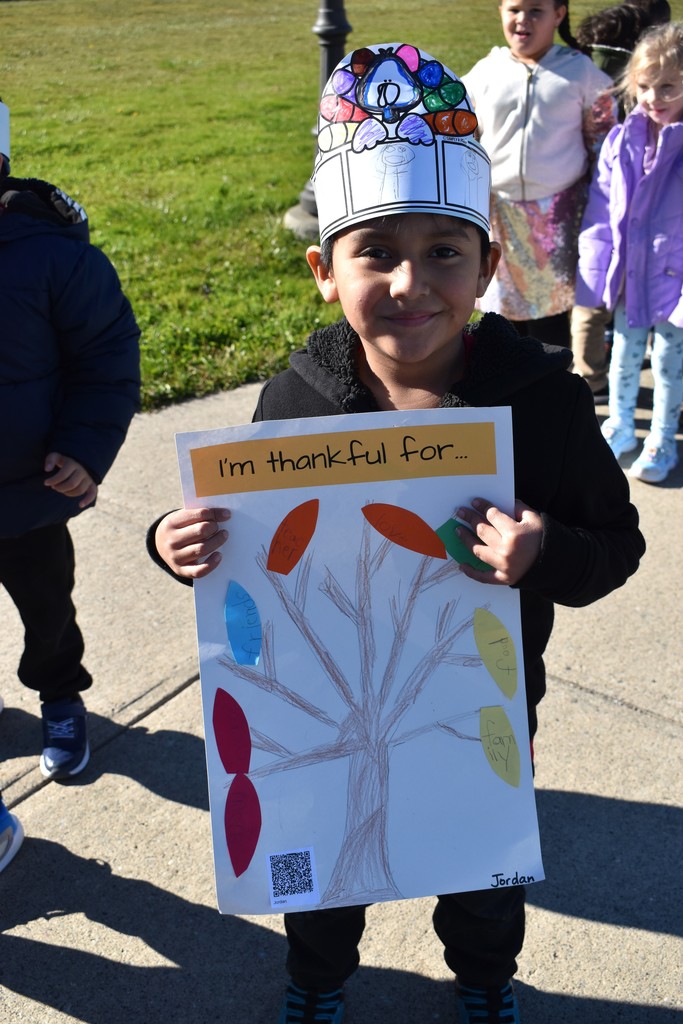
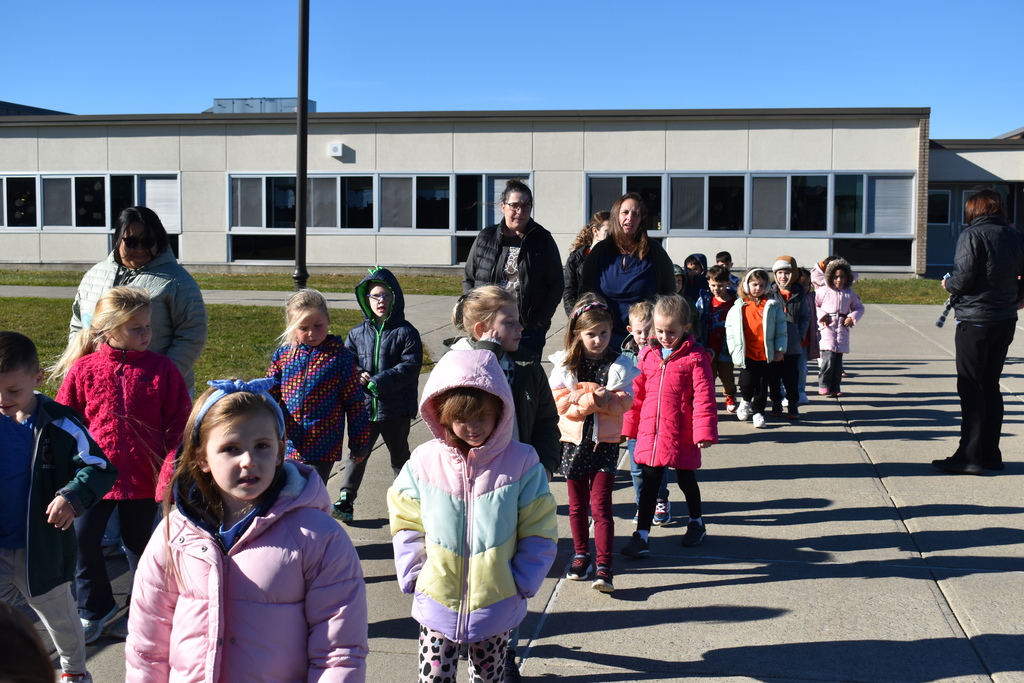
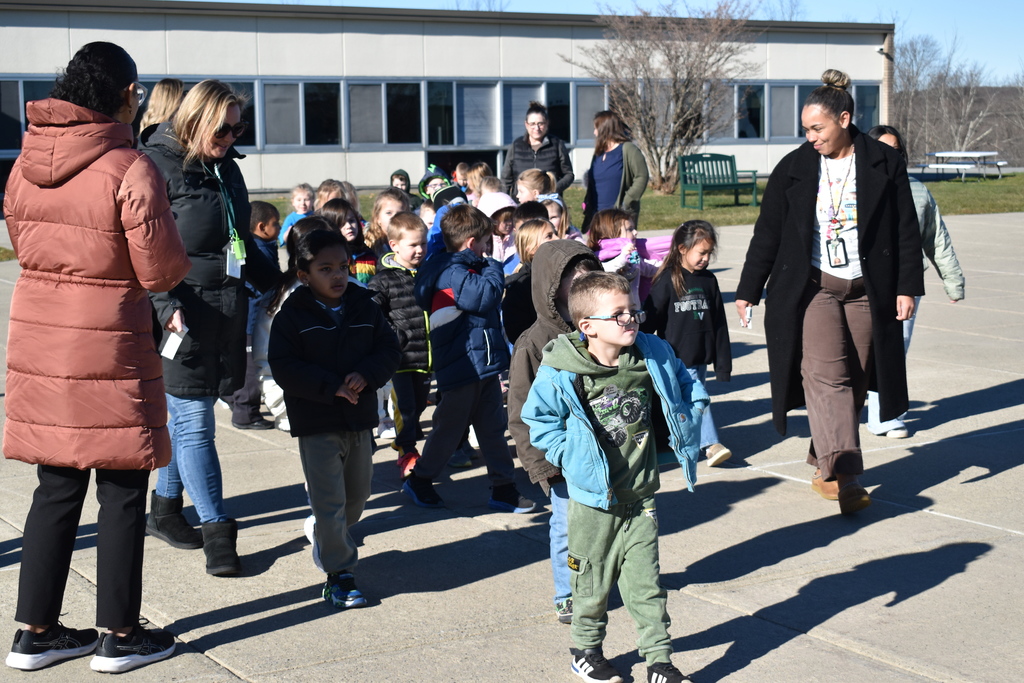
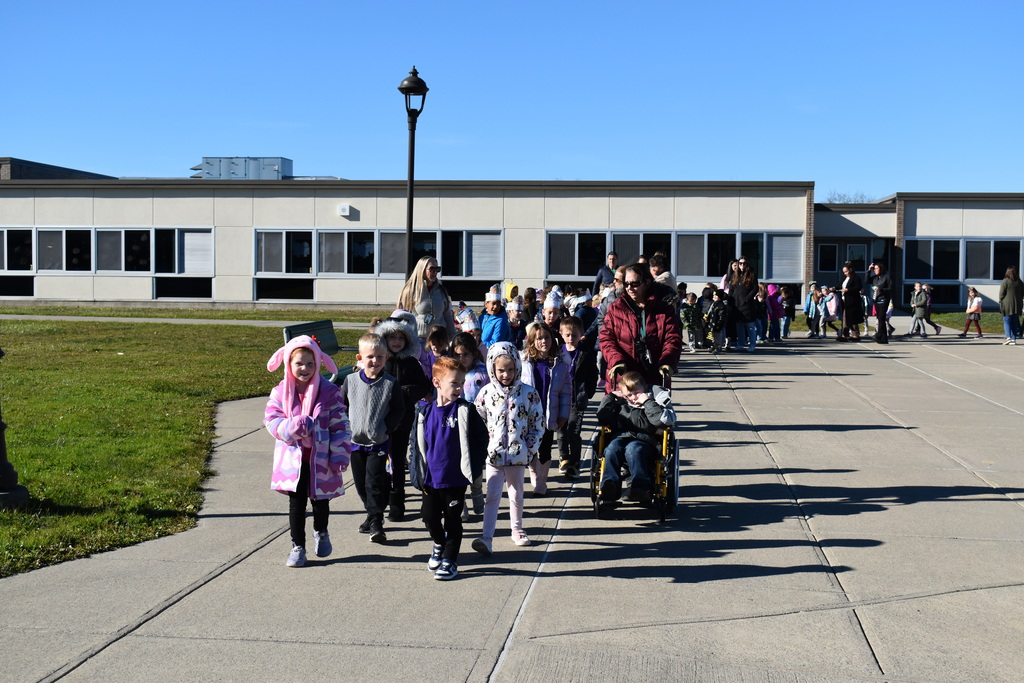
Ms. Ruoti asked students to apply what they had learned about the needs of living things—particularly how plants grow and provide the foods we enjoy—while collaborating closely with their peers in a fun STEM component to their science studies and discussions about Thanksgiving. They were tasked with designing and building a table sturdy enough to support eight gourds. The gourds served as a playful, seasonal stand-in for the plants and vegetables they been discussing in their plant unit.
Gourds (as well as pumpkins and squash) are associated with Thanksgiving mostly because they’re classic symbols of the fall harvest. Because they grow in abundance at that time, they naturally became tied to autumn celebrations. Thanksgiving is all about gratitude and plenty, and a big bowl --- or table --- of gourds visually symbolizes a good harvest and a season of thankfulness.
Once their table was completed, students were tasked with collaborating together again to build chairs for their mini-stuffed animal friends to sit on, so their fuzzy pals could enjoy a good old-fashioned gourd feast! While stuffed animals may “eat” those knobby little decorative gourds, we would not. However, their presence connects back to the history, harvest season and spirit of Thanksgiving!
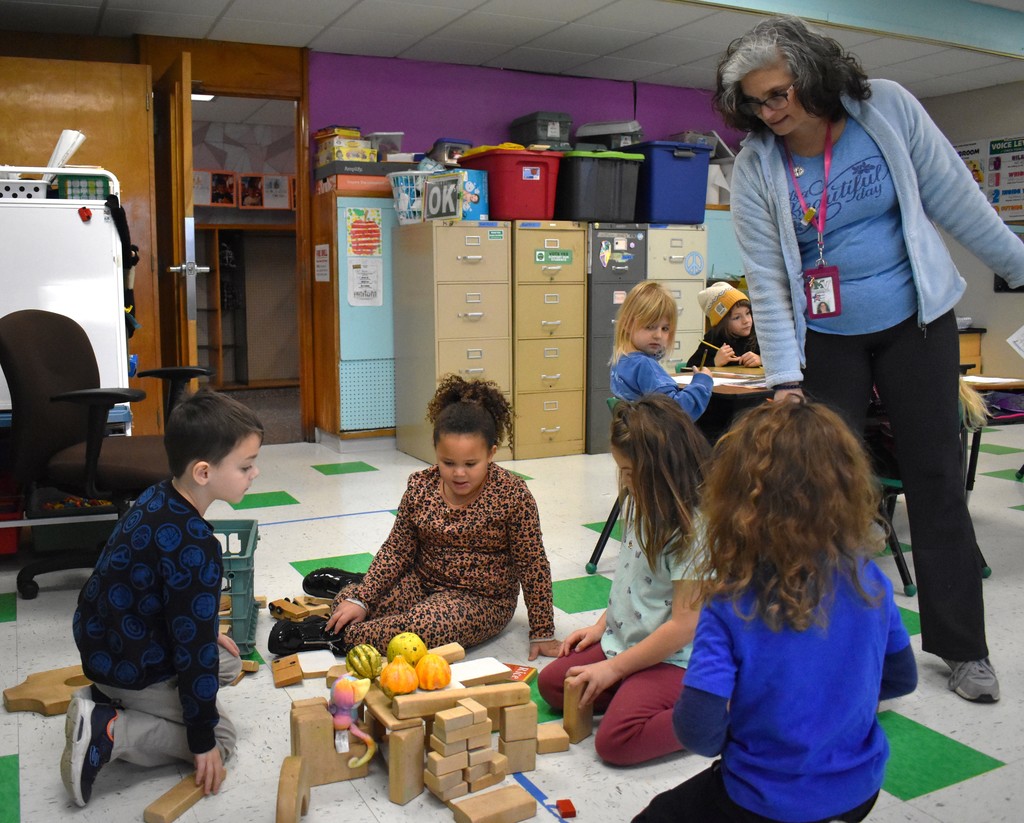
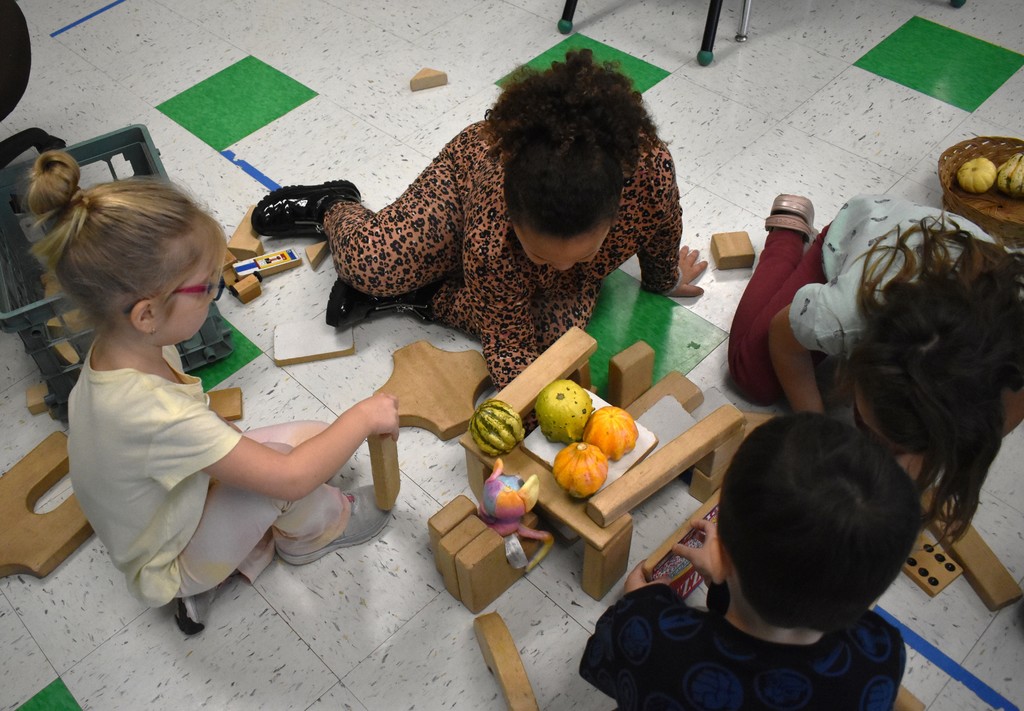
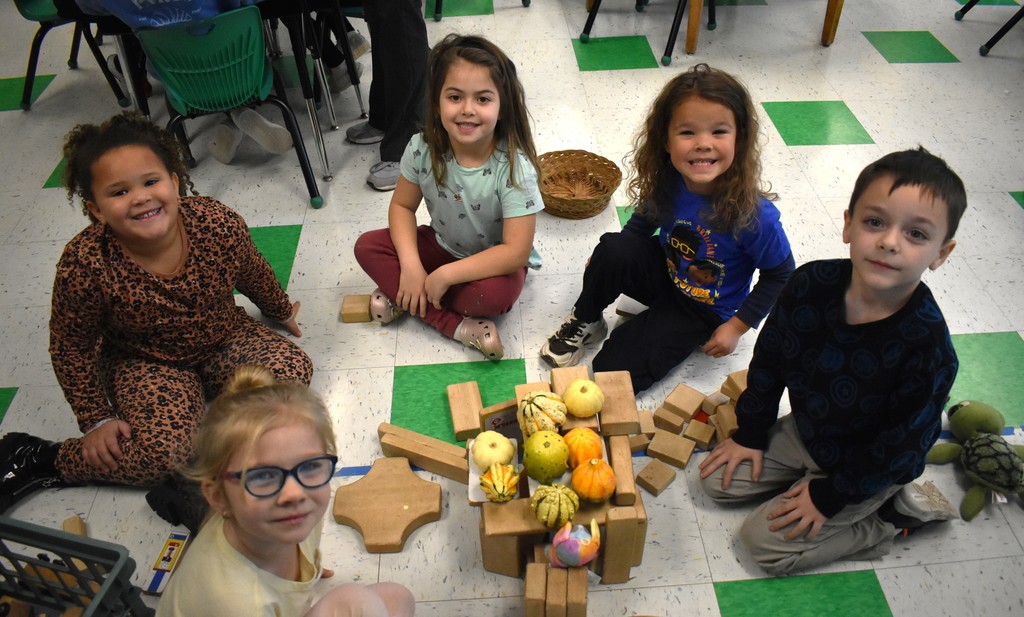
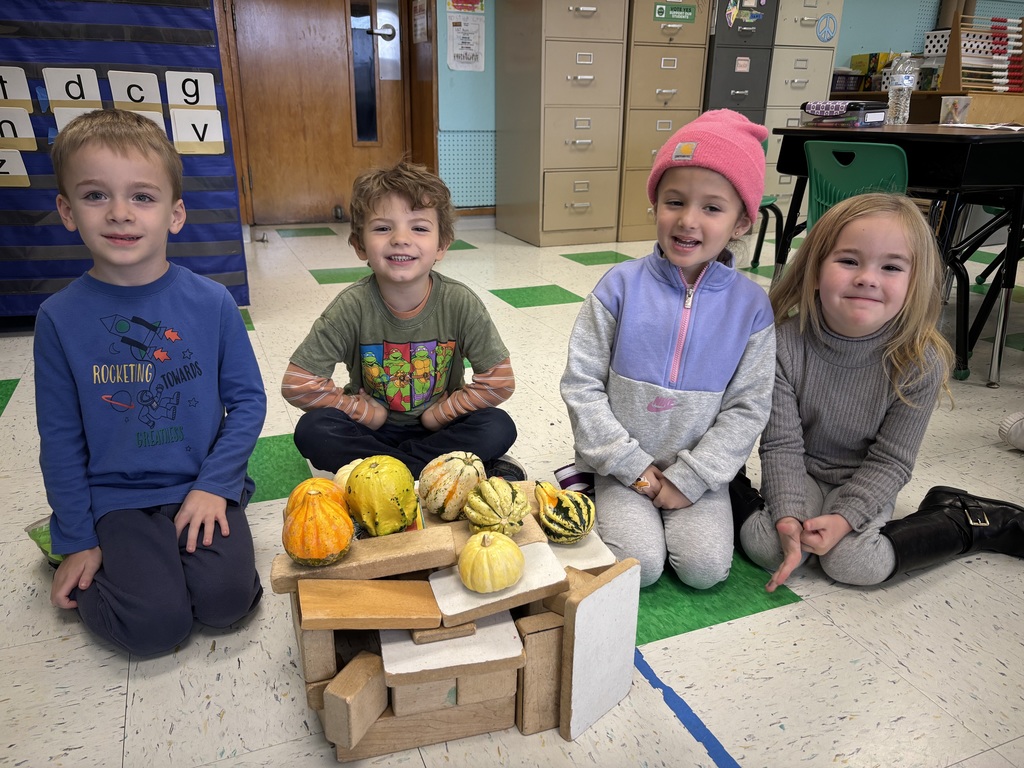
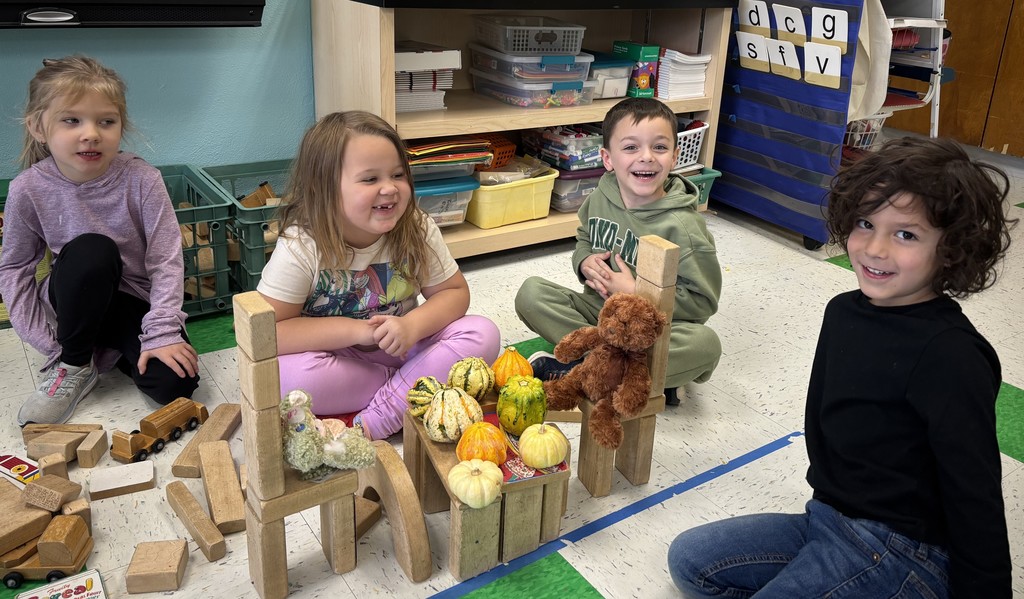
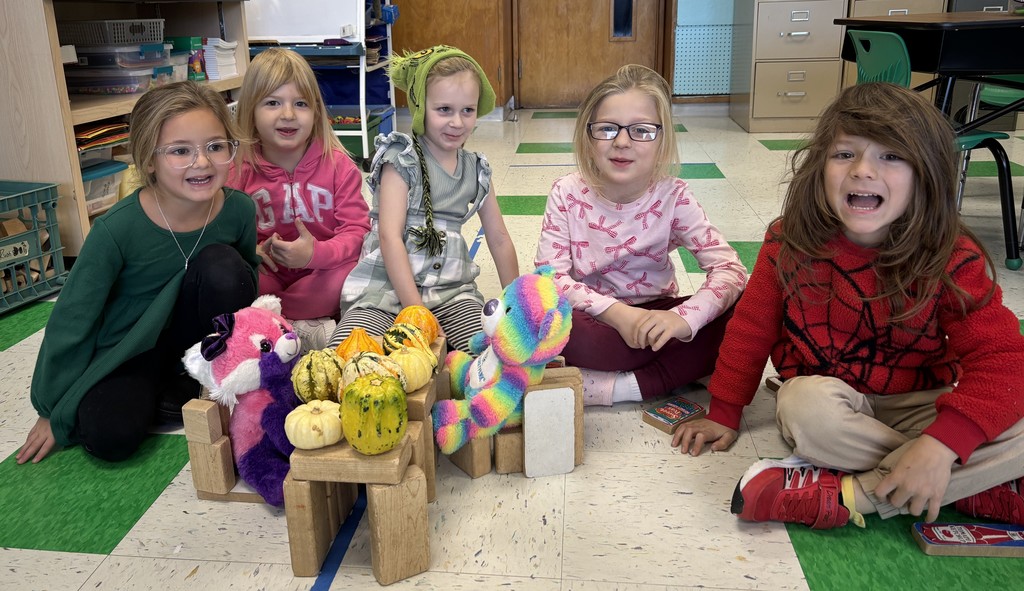
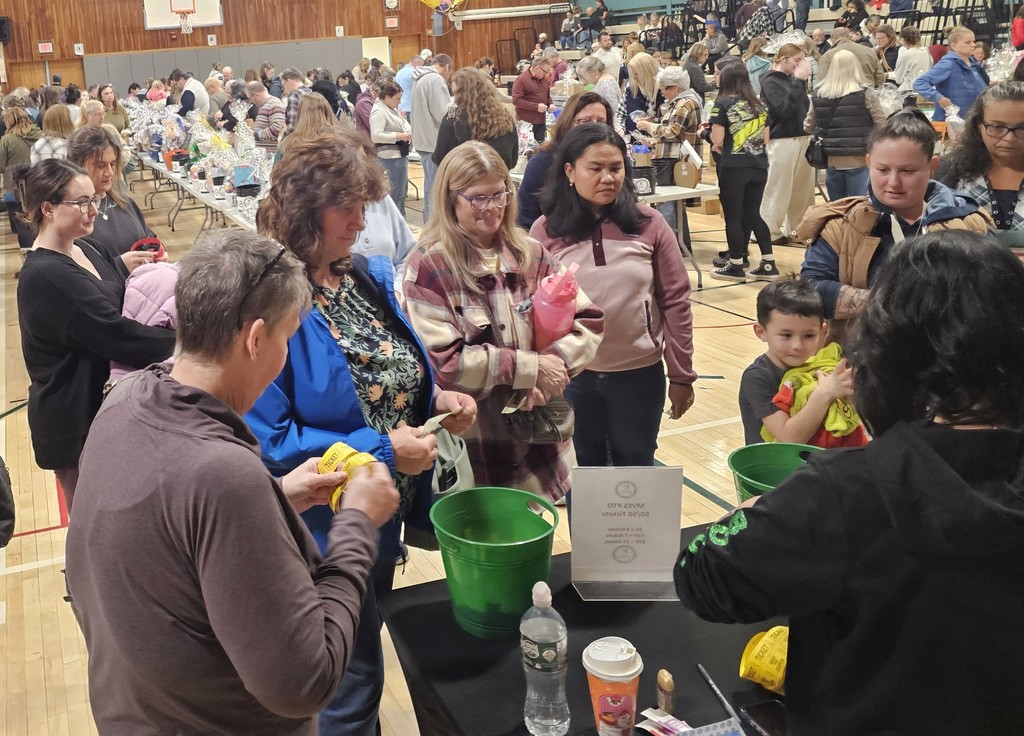
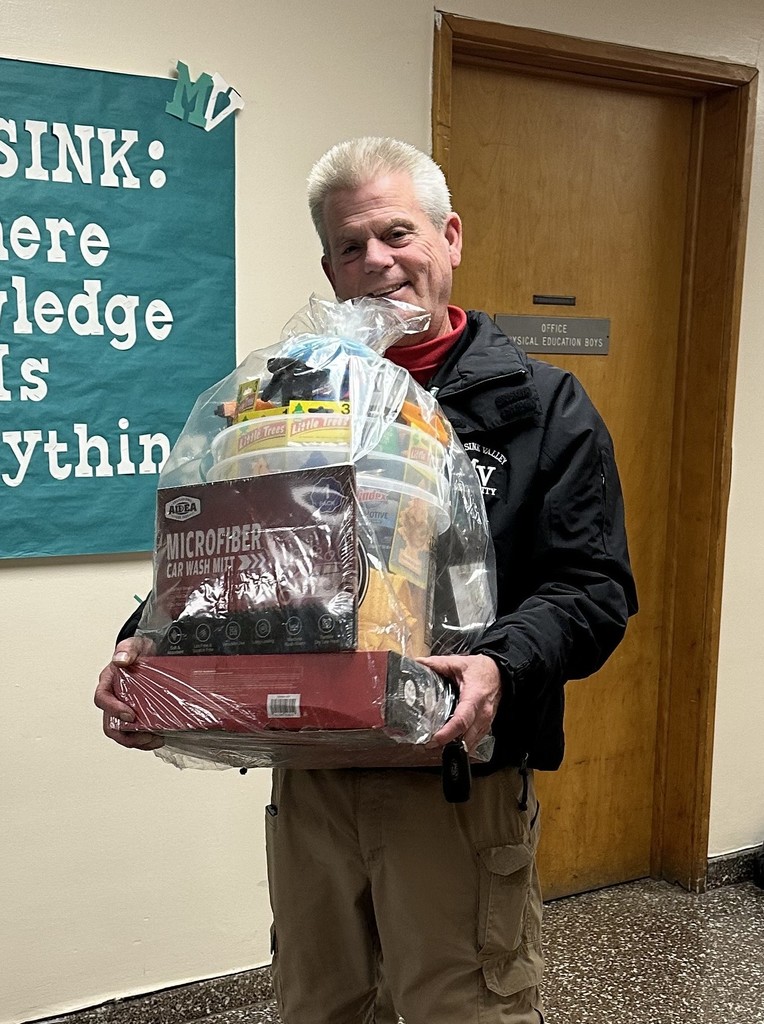
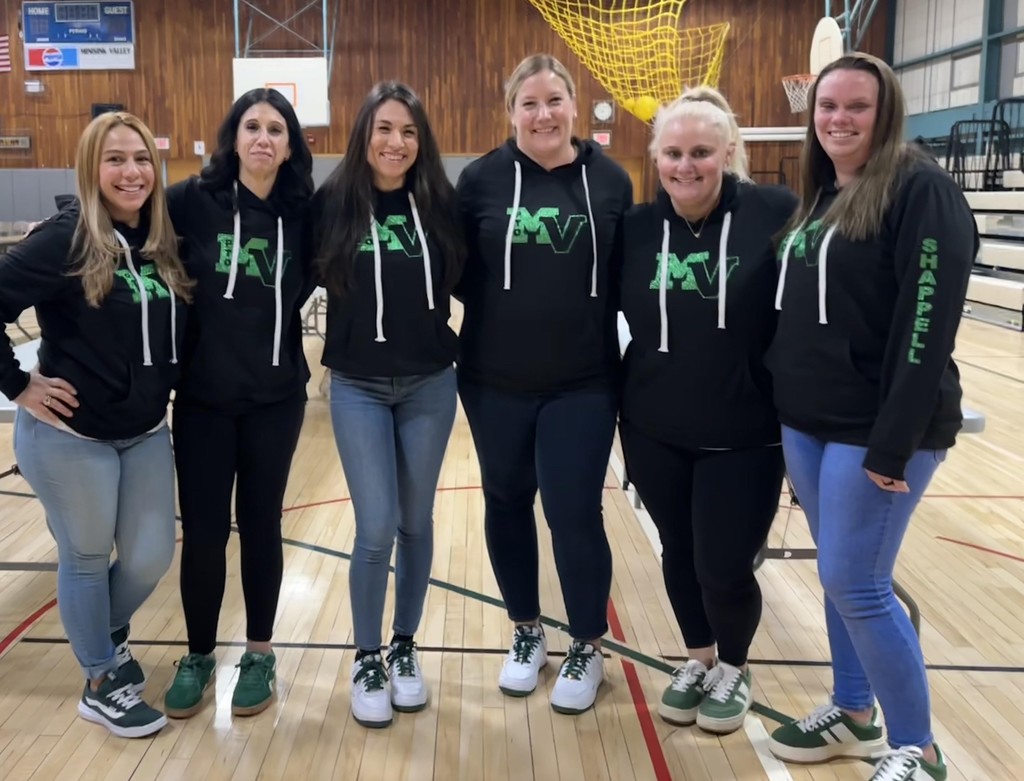
The idea was the brainchild ES secretary Tammy Zamot, and these little students wrote some very sweet messages. Even if the spelling and/or penmanship was a bit off, there was no doubt what the messages were meant to tell others. Some even drew what they were thankful for!
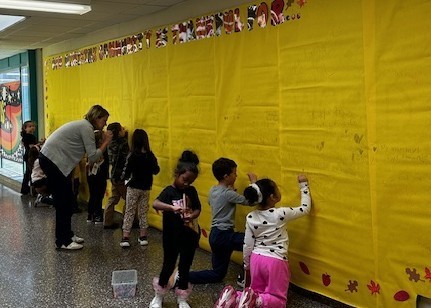
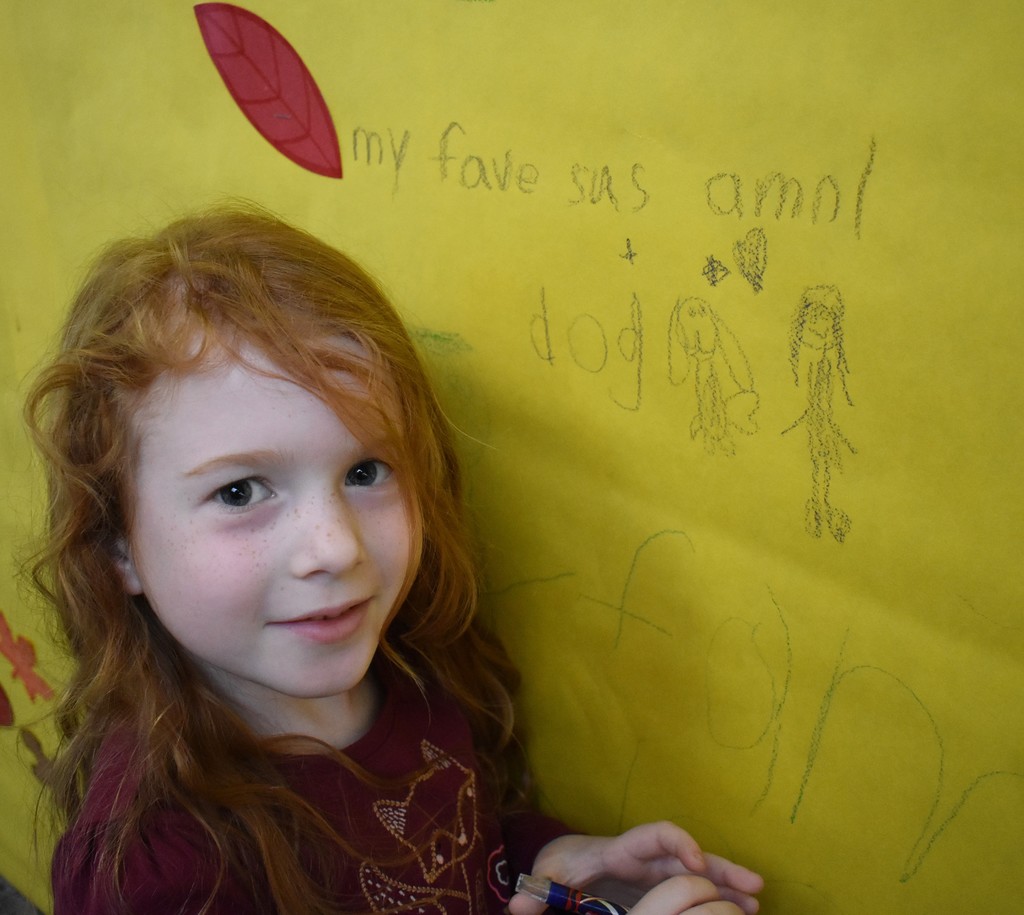
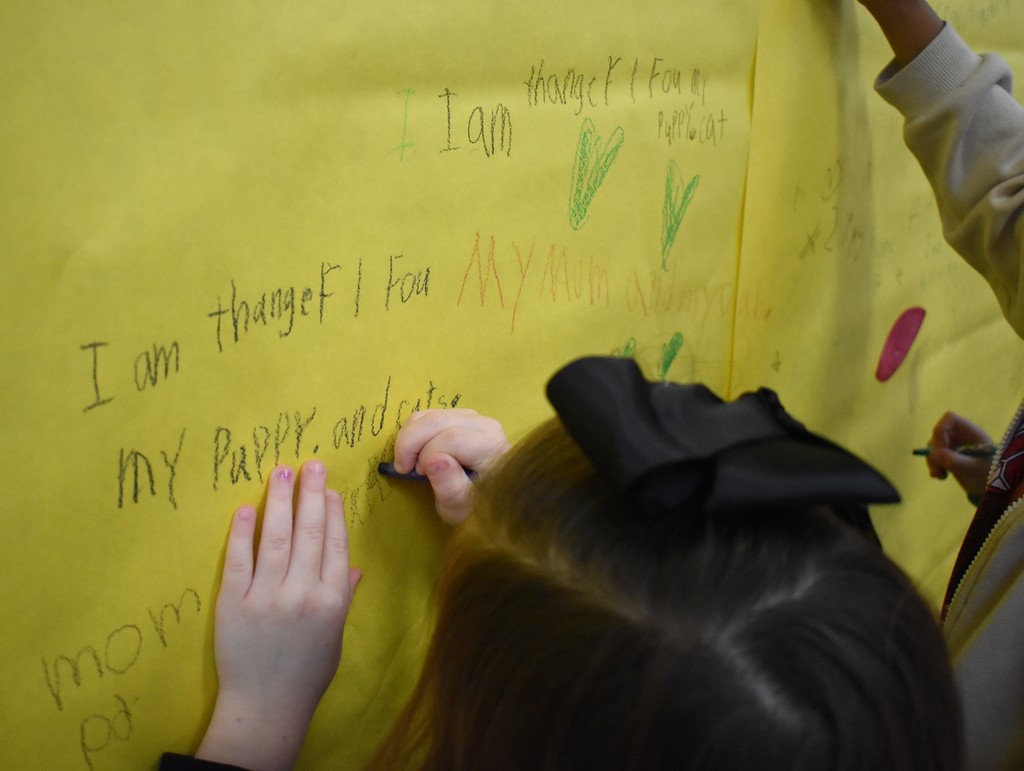
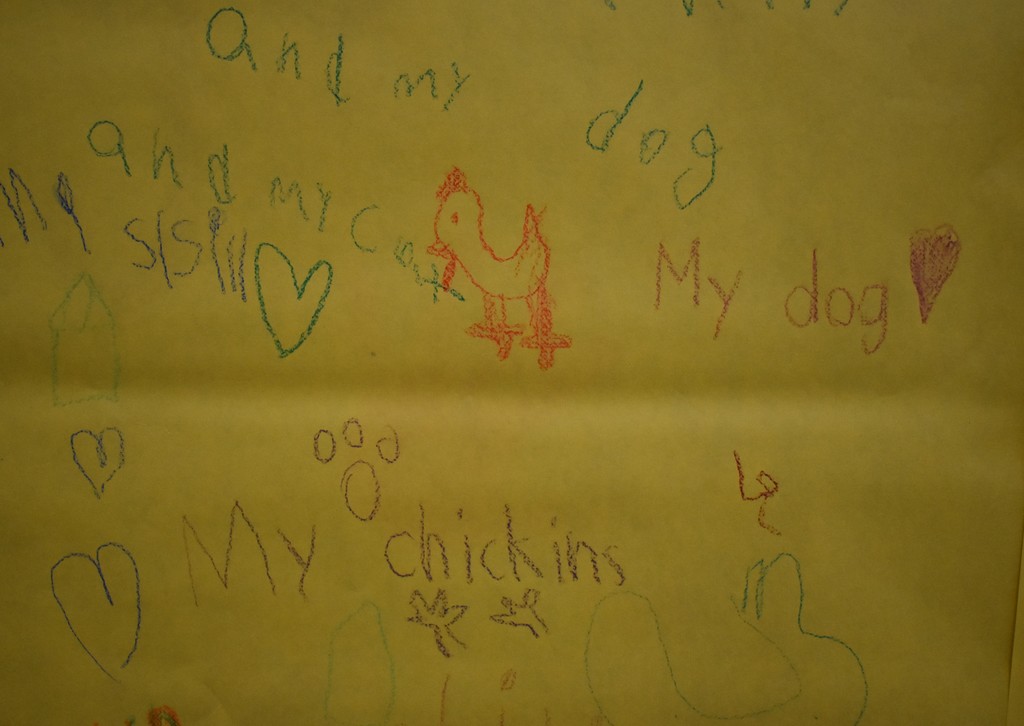
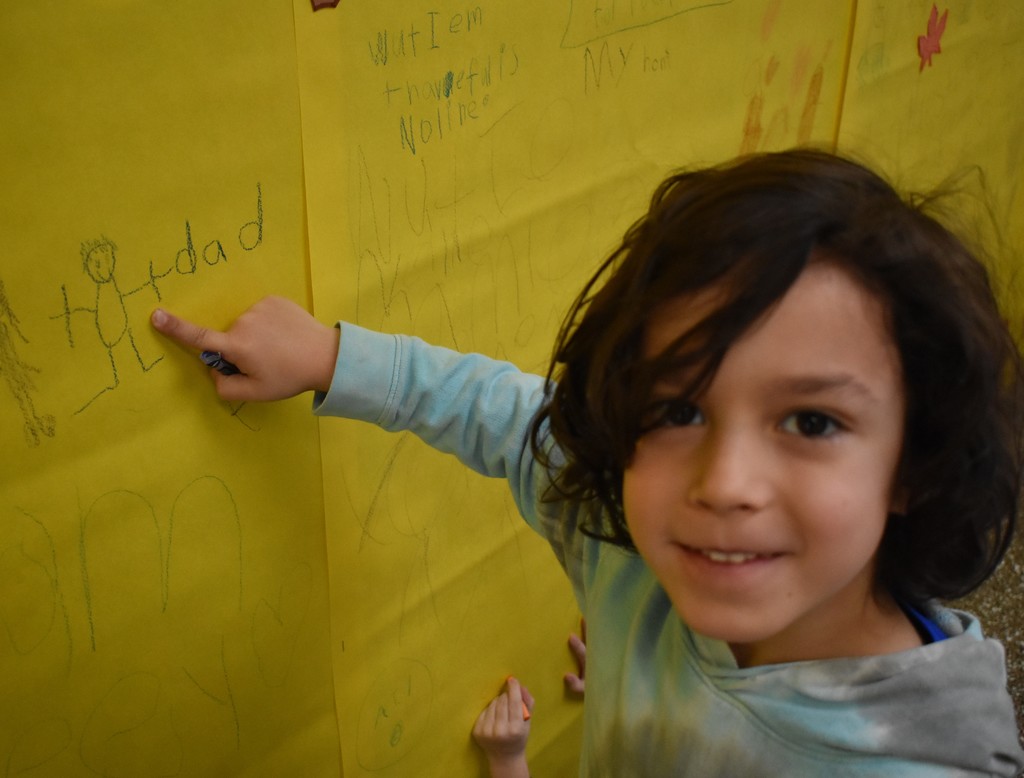
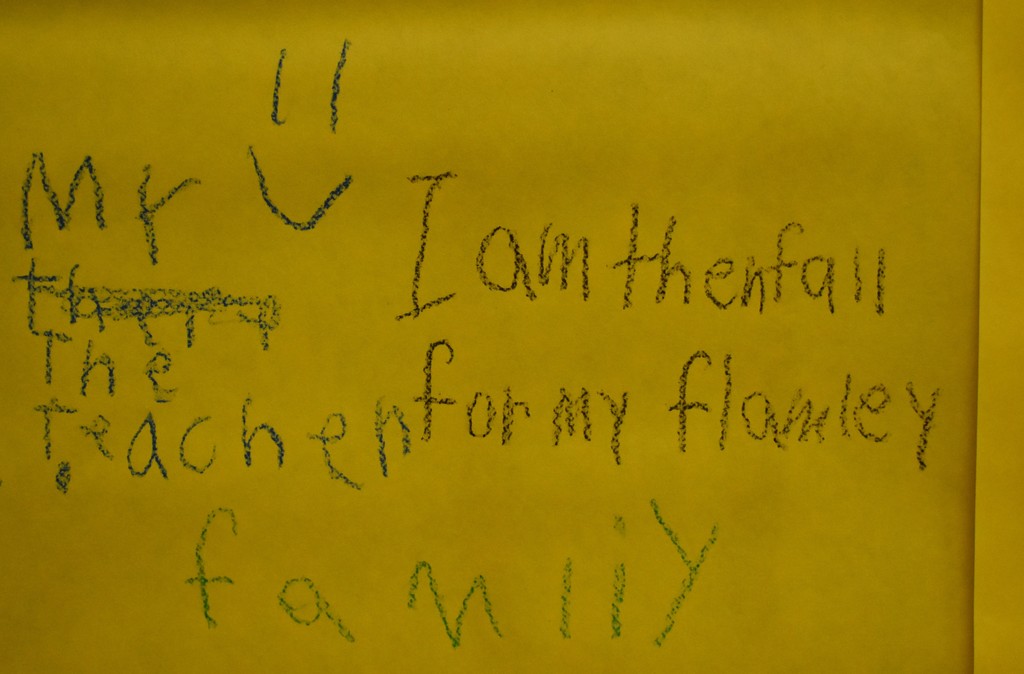
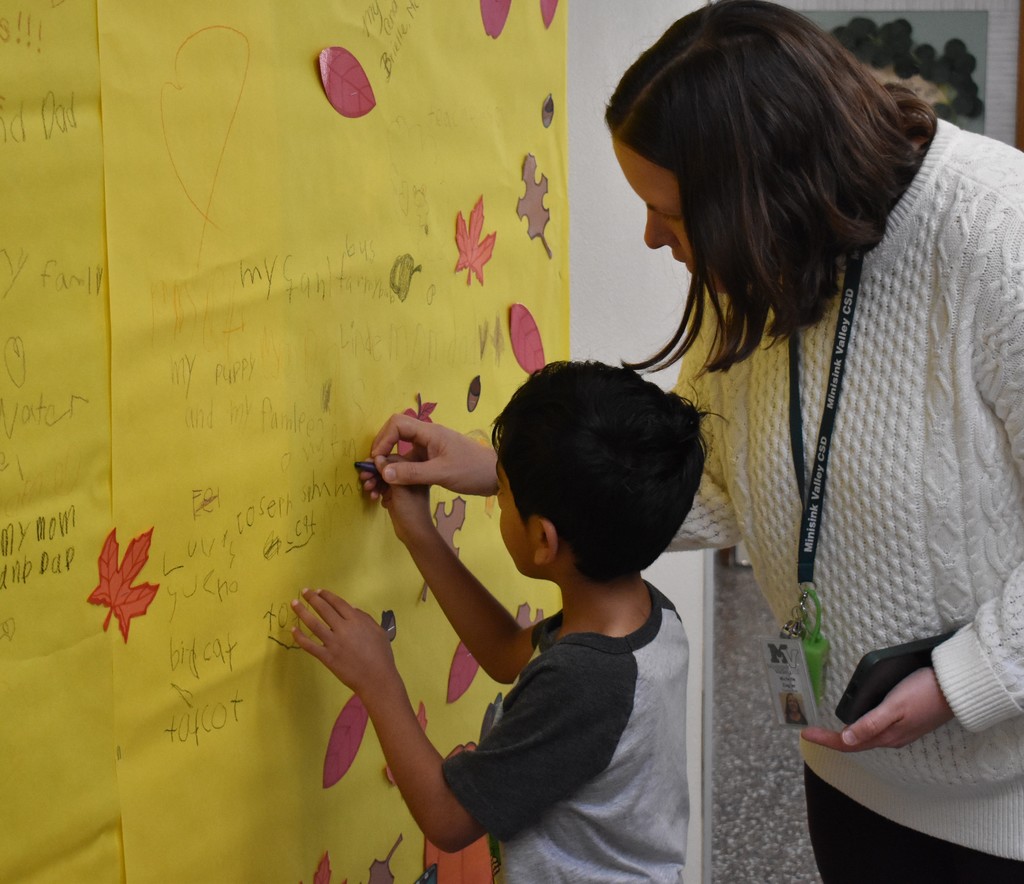
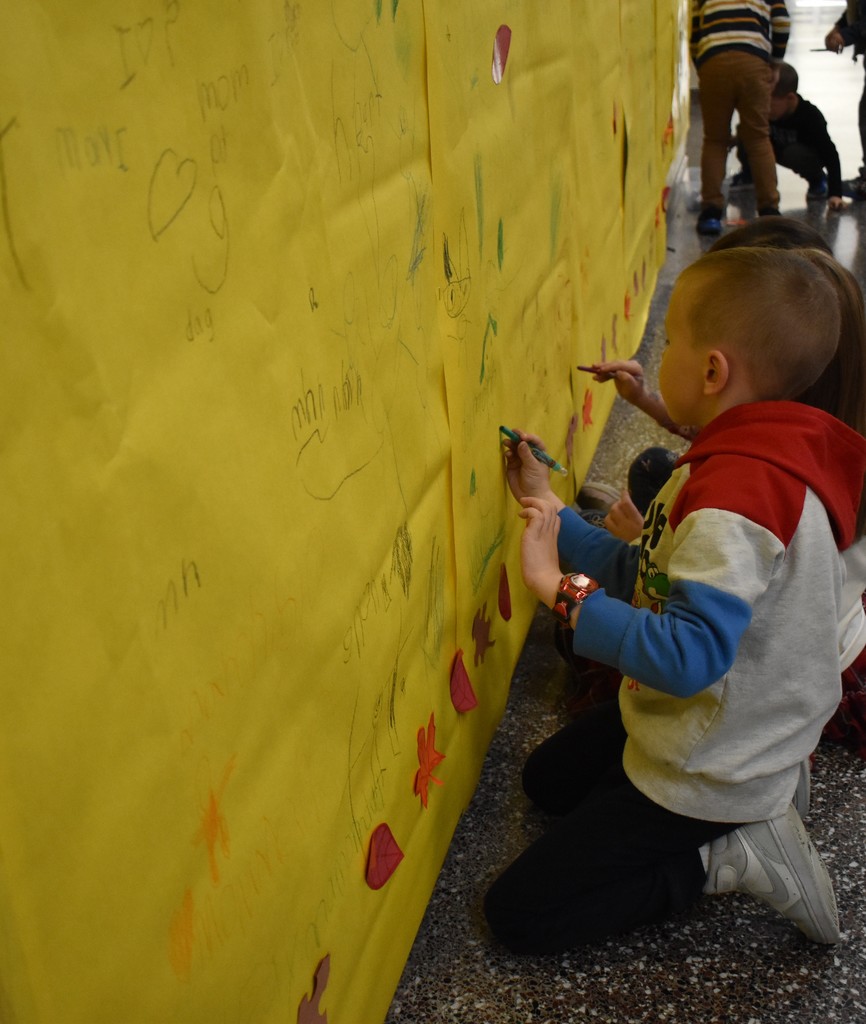
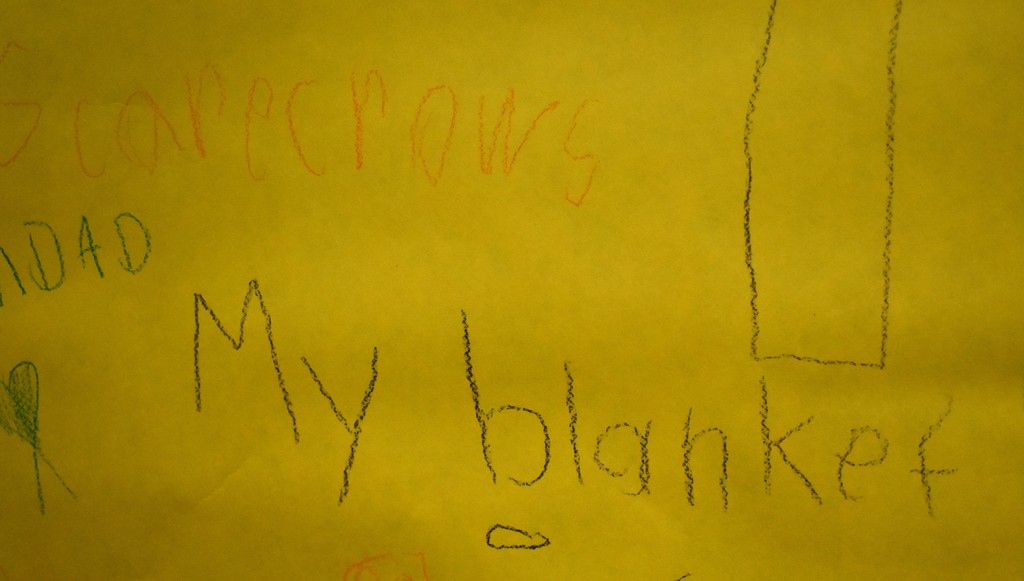
SIGN-UP! The High School’s Step Dance Team is hosting its first ever "Just Dance" Kids Night Out for K-5 students on Friday, Dec. 5 from 5 to 7:30 p.m. in the High School’s cafeteria. It’s going to be a fun and instructive evening out for students, who will learn some great dance steps from talented Step Dance club members! PLUS: You can have a chance to get some holiday shopping done, or even grab a bite to eat! Cost is $20 per student, paid by cash at the door, but registration is required! (See the QR code) Sign up early, as registration is limited to 40 students!
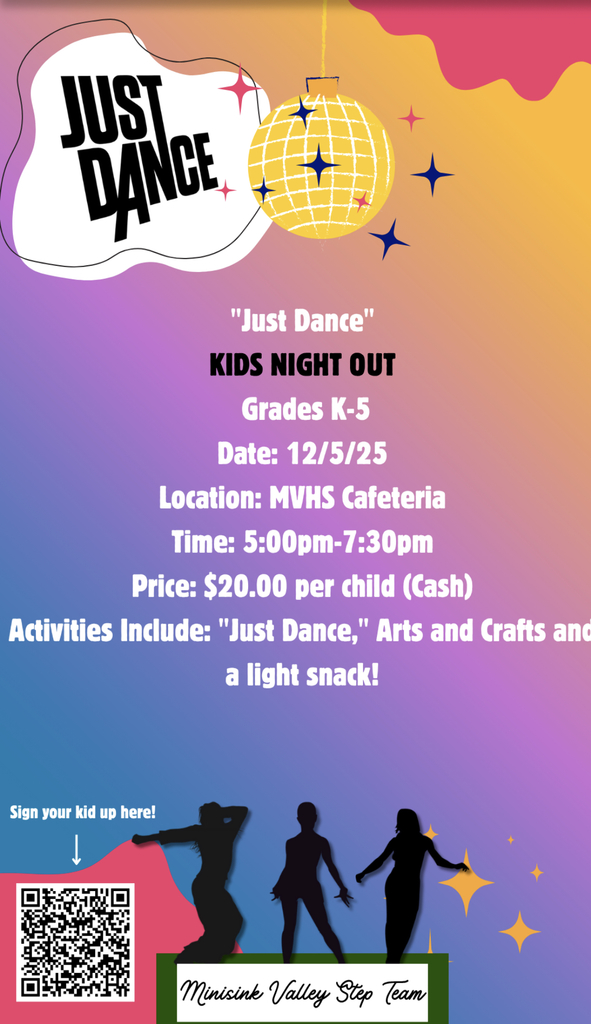
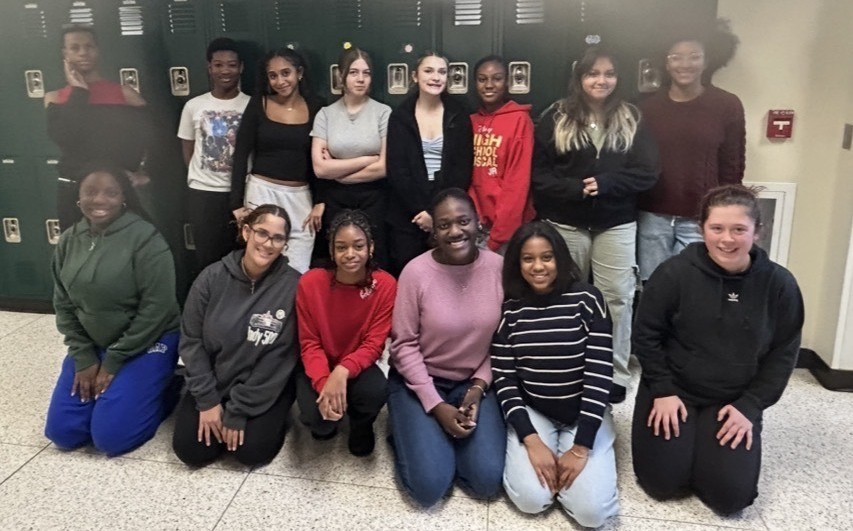
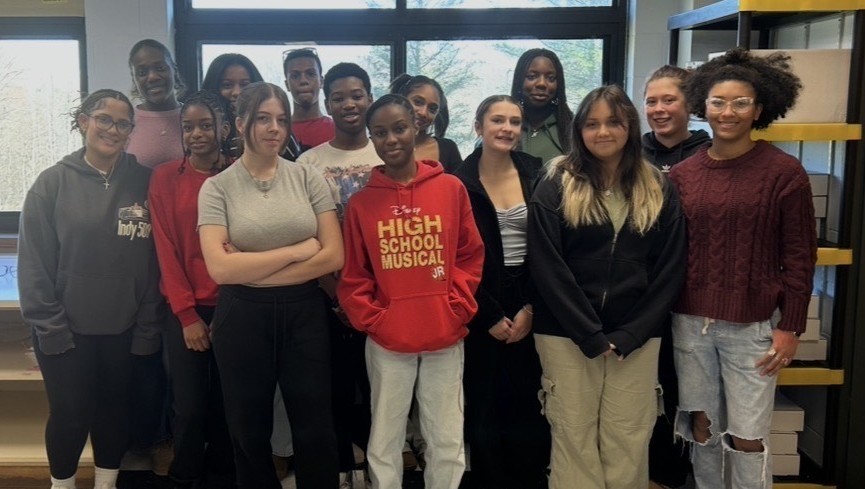
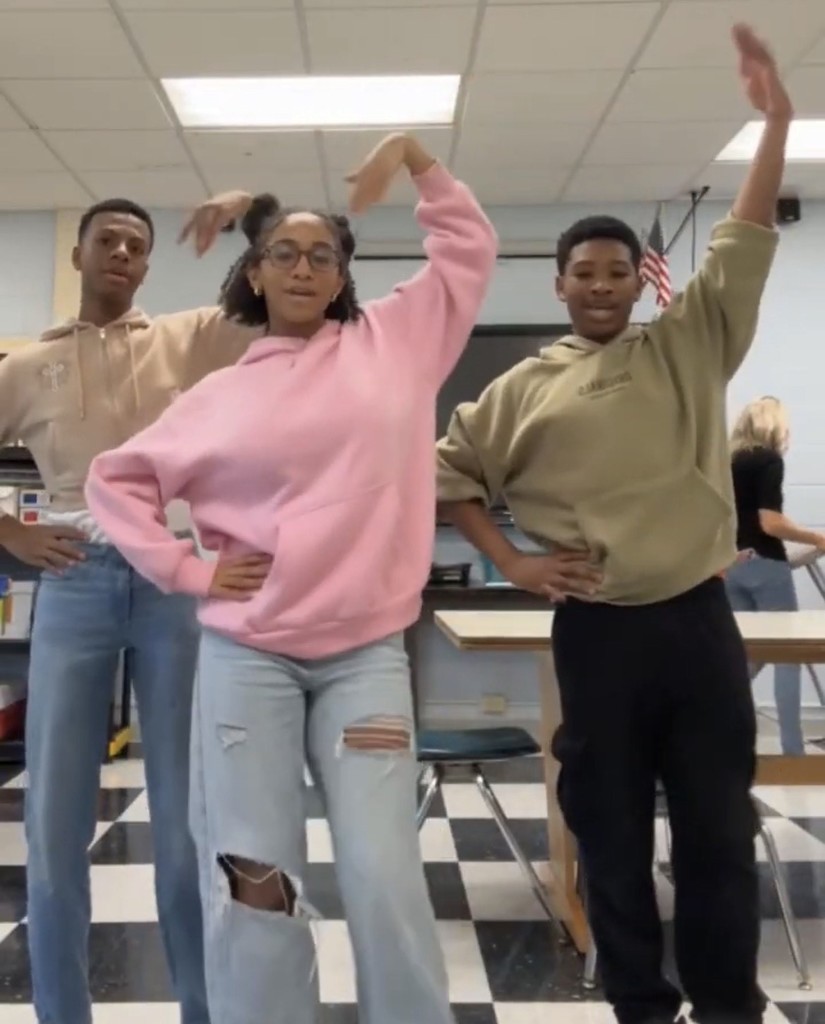
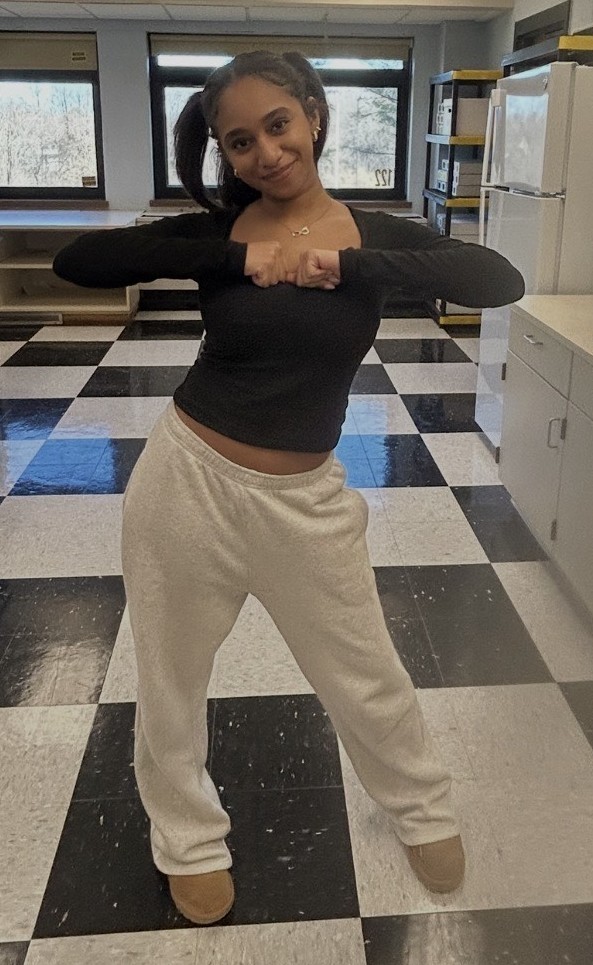
Students were first “chaining” words with “ai” spellings. “Chaining” is simple vocabulary and phonics activity where students change one letter at a time to make a new word. It helps them understand how letters and sounds work.
Then, Mrs. Kelly dictated words with the 'ai' spelling (such as maid, aid, wait, paid) and words with the short /a/ spelling (such as mad, pat, cat, cap) and students sorted them as they wrote them.
Understanding the "ai" spelling for the long /a/ sound is useful in second grade for improving both reading and spelling skills, as it helps students recognize a common pattern and apply it to writing. It builds reading fluency by allowing them to decode words like "maid" or "paid" and enhances spelling by giving them a tool to write words like "train" or "aim" with the correct vowel team.
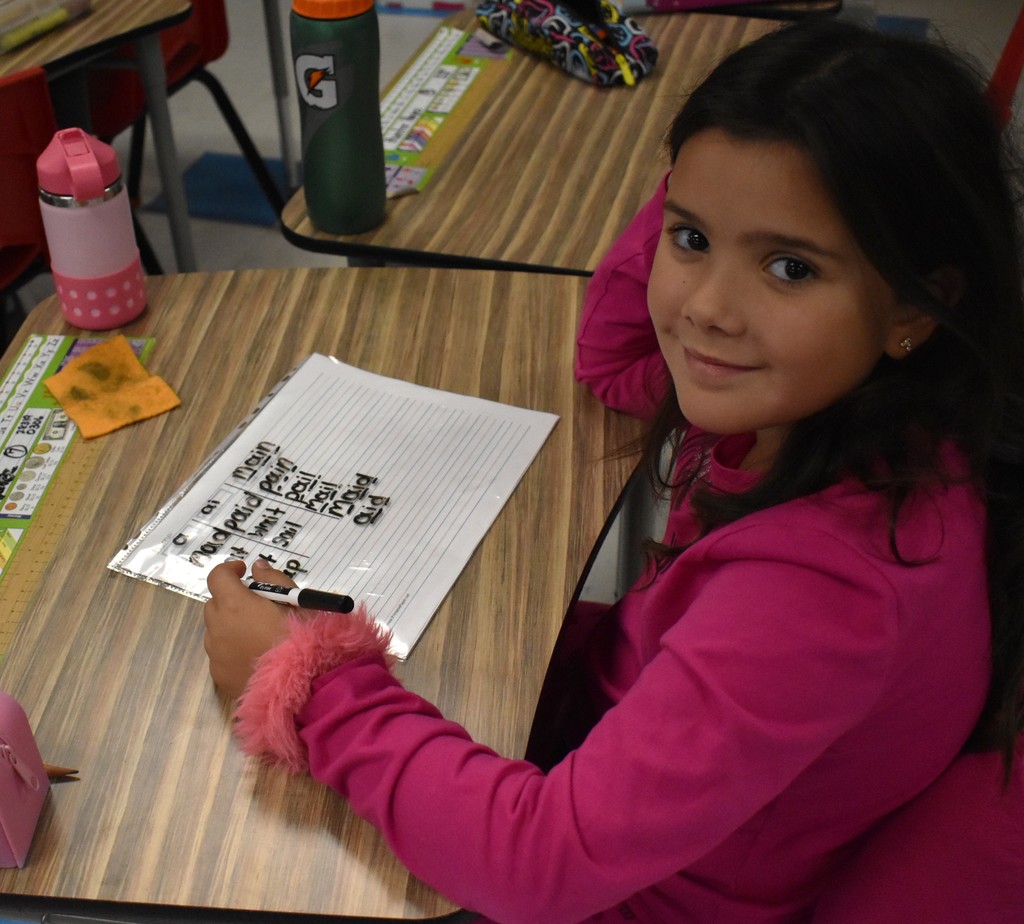
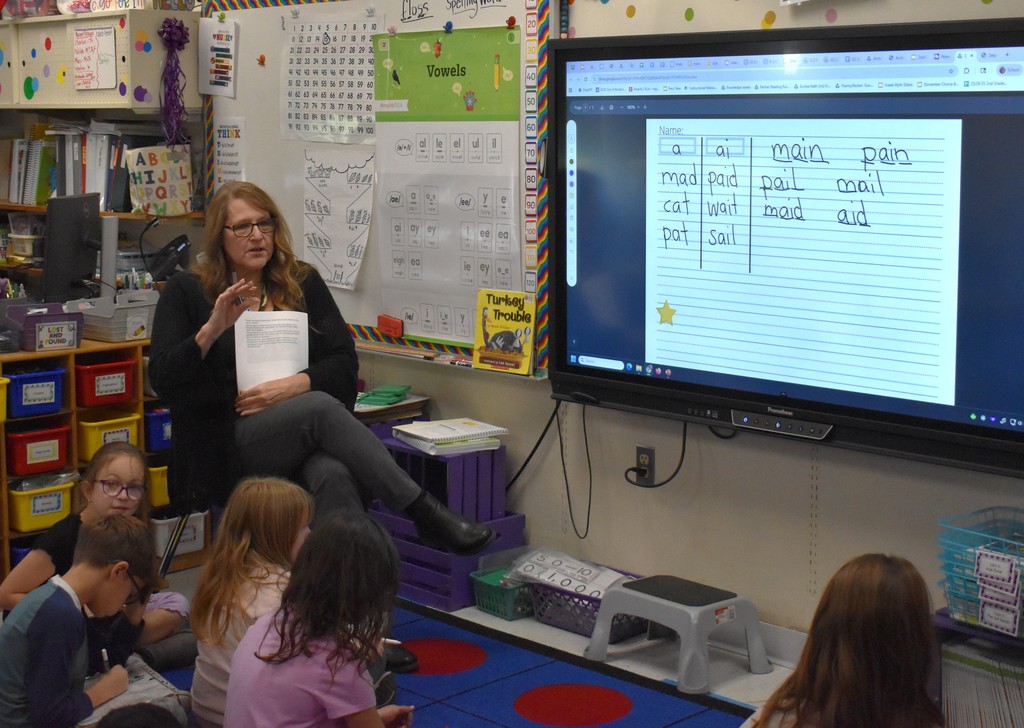
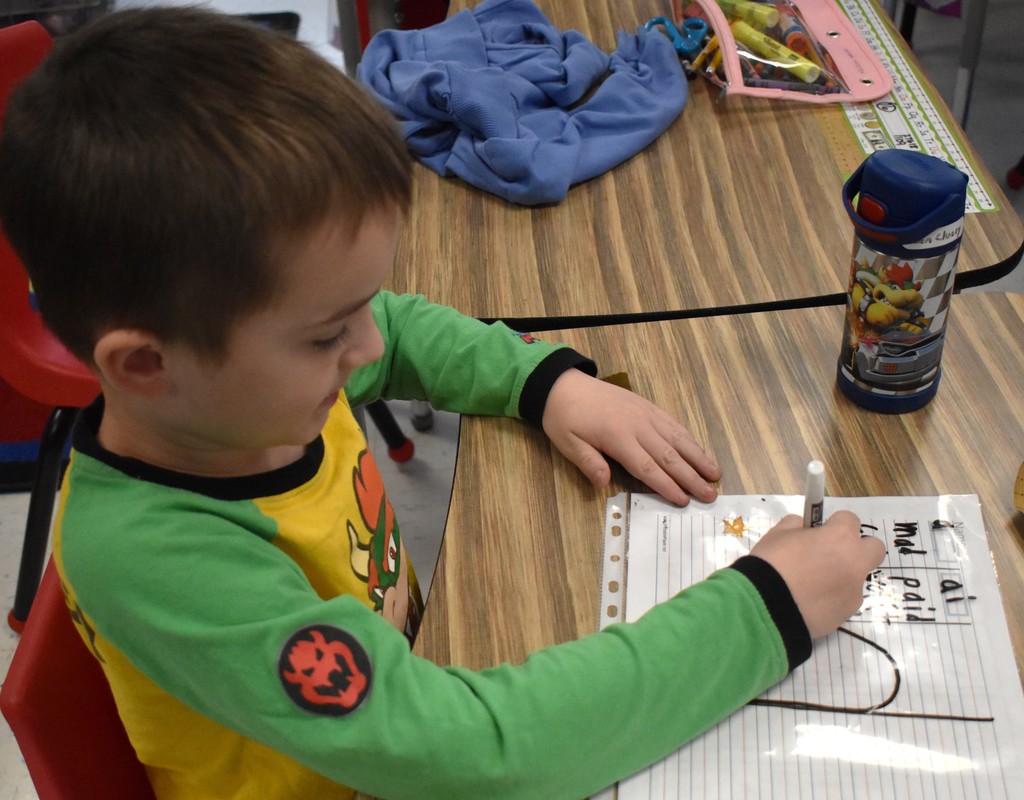
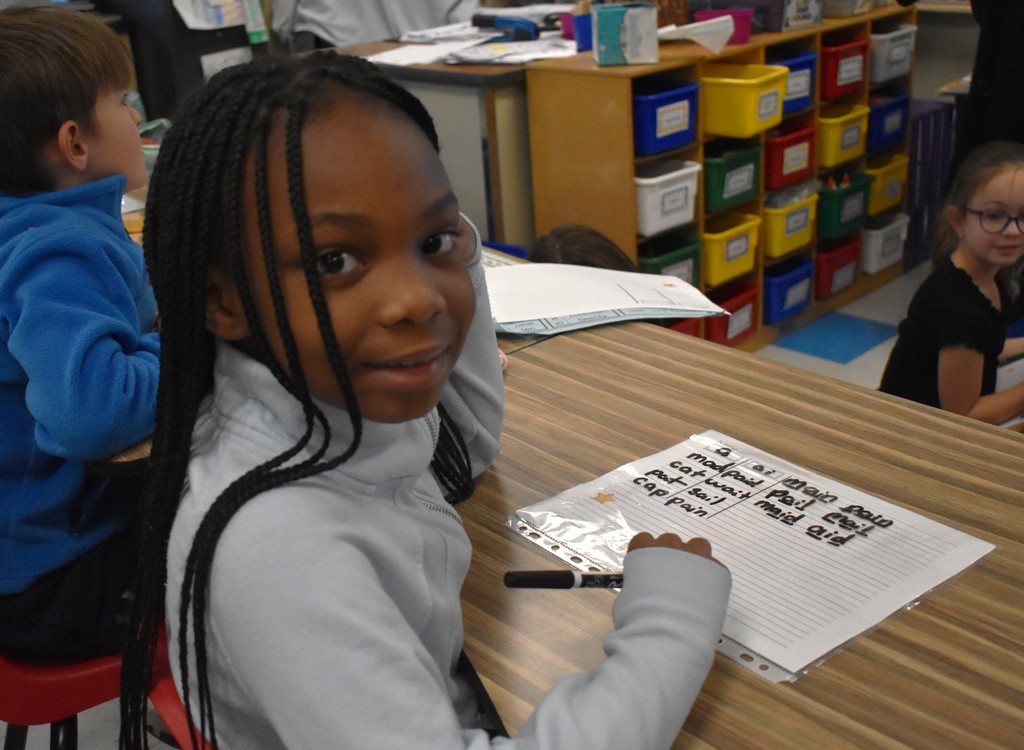
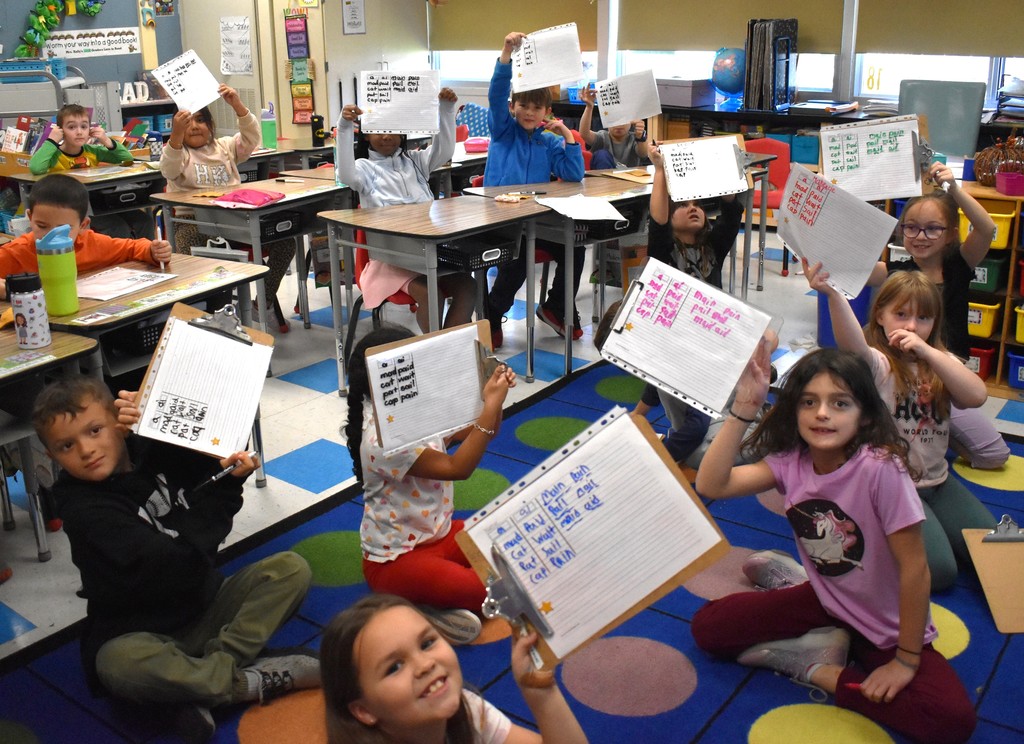
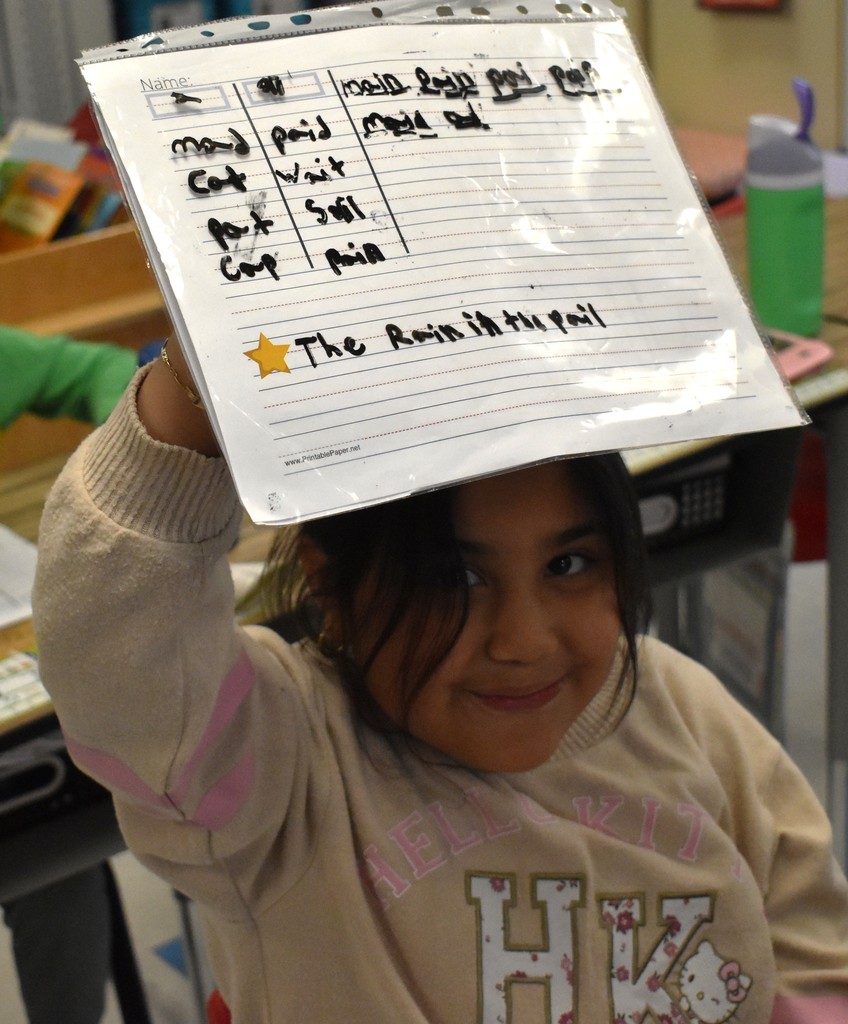
• Sight: Students observed color and shape
• Sound: students listened to the knock of a ripe one or the scraping of seeds
• Smell: Students noticed the earthy scent inside
• Taste: Students tried roasted seeds
• Touch: Students felt the smooth rind and slimy insides
They also listened to Will Hubbell’s “Pumpkin Jack,” a story about a boy named Tim who carves a jack-o'-lantern he names Jack. After Halloween, the pumpkin rots in the garden, and Tim buries the remains. In the spring, a new plant sprouts from the seeds, which Tim tends to, and it eventually grows into a new pumpkin plant. By the next Halloween, a new pumpkin has ripened, and Tim carves a new jack-o'-lantern, completing the life cycle of a pumpkin.
Then, they collectively undertook a science experiment with their own version of “Pumpkin Jack” and will be watching how it decomposes with the expectation that a new pumpkin plant will grow in the spring. They’ll see firsthand how a pumpkin’s life cycle takes place.
Students also learned new, “big” vocabulary words, too, like seeds, stem, shell, flesh, pulp, vine, roots and more!
•Pumpkins are fruits that grow on vines and come in many colors, including orange, white, and green. They contain seeds and a stringy pulp inside, and you can eat the seeds after roasting them. Native Americans have been growing pumpkins for over 5,000 years, and the word "pumpkin" comes from the Greek word “pepon,” meaning "large melon". The word also connects with the Latin word “peponem” and the French word “pompom.”
•They’re cultivated in every continent in the world except Antarctica. Pumpkins are found in many dishes, from pies and porridges to soups and curries. You can even cook and eat pumpkin seeds. In addition, some cultures use pumpkins for medicinal purposes.
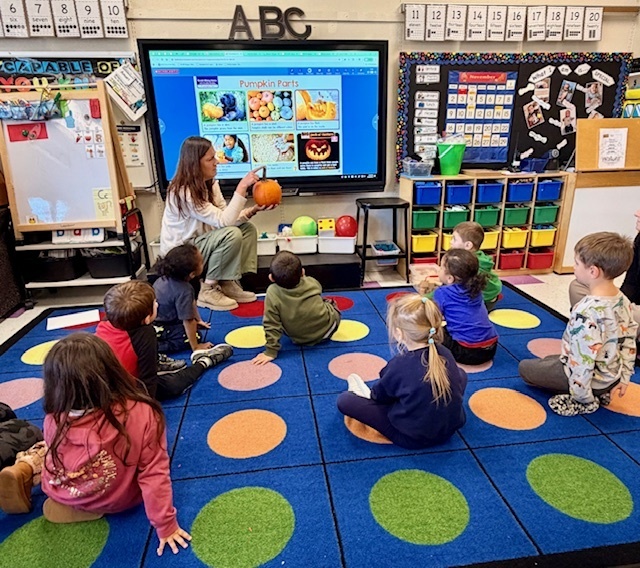
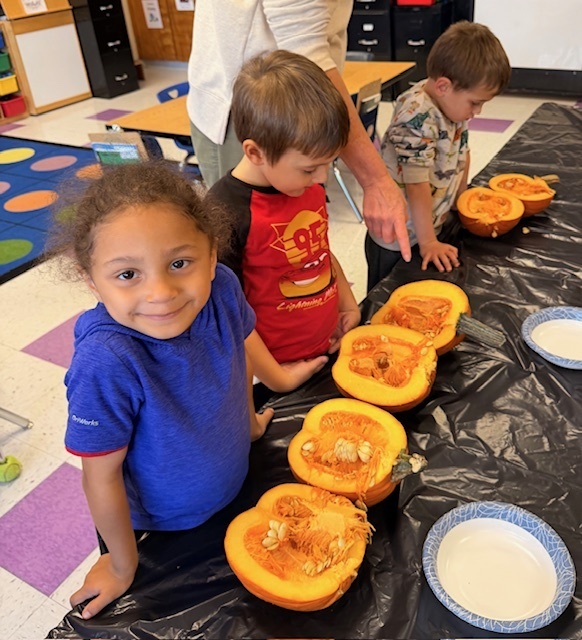
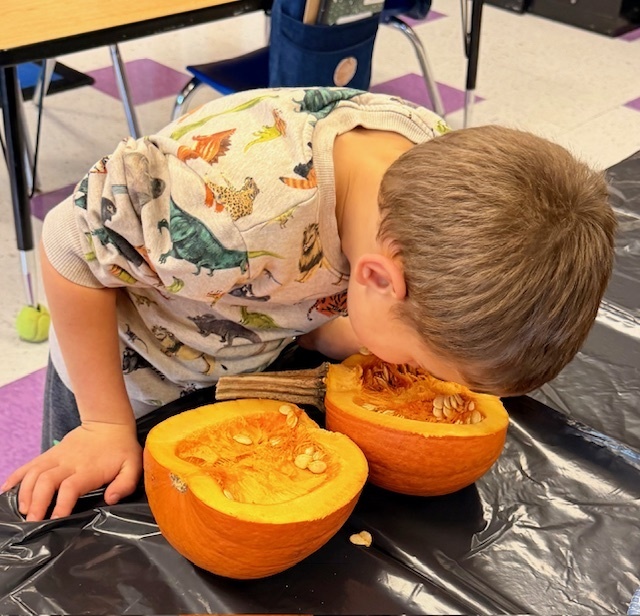
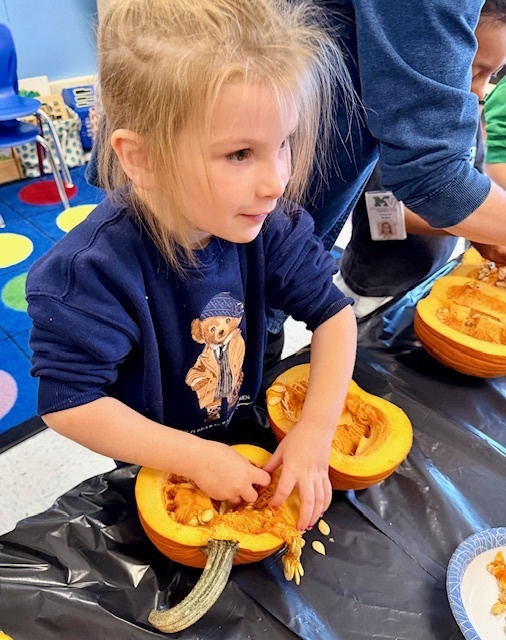
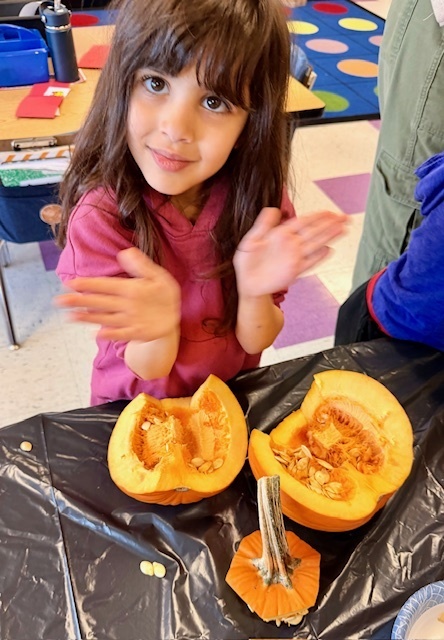
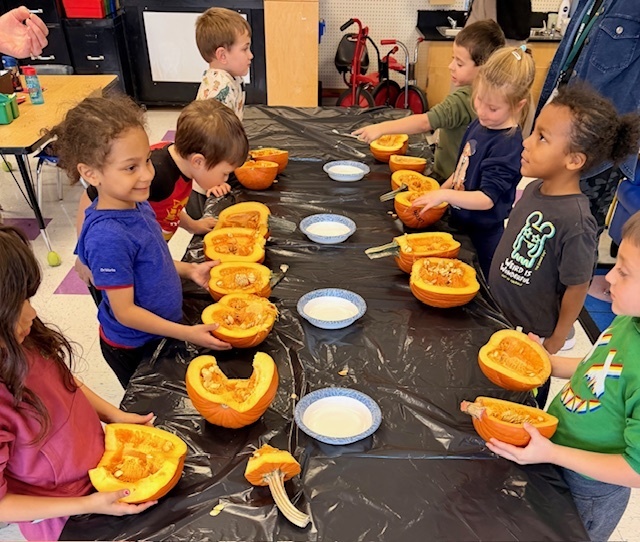
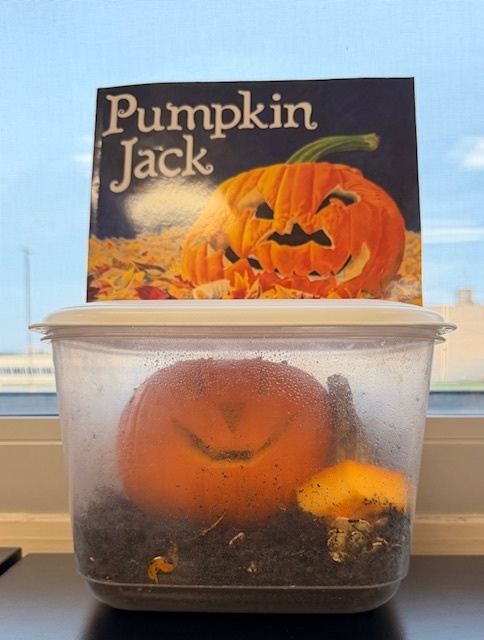
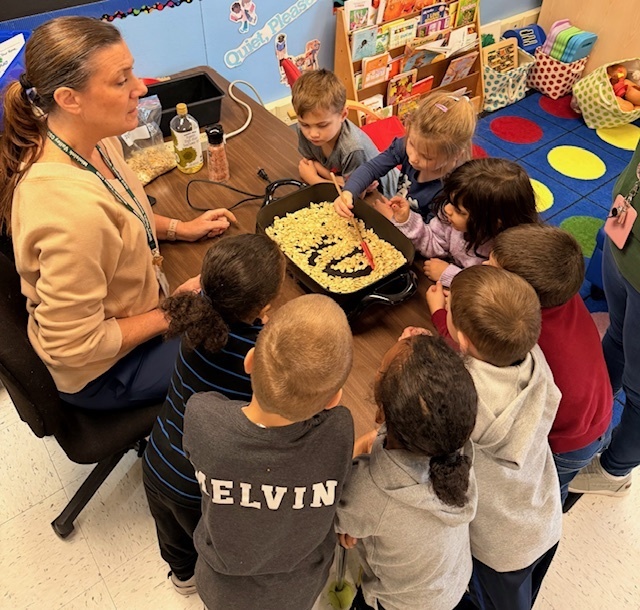
This "color the stairs" concept refers to a visual and hands-on activity where students arrange linking cubes to create "number stairs." By coloring each step to represent a number, they can see that each subsequent step is one more and can also see the one less pattern as they count down. This exercise helps build a foundational understanding of number order, one-to-one correspondence, and the concepts of adding one and subtracting one.
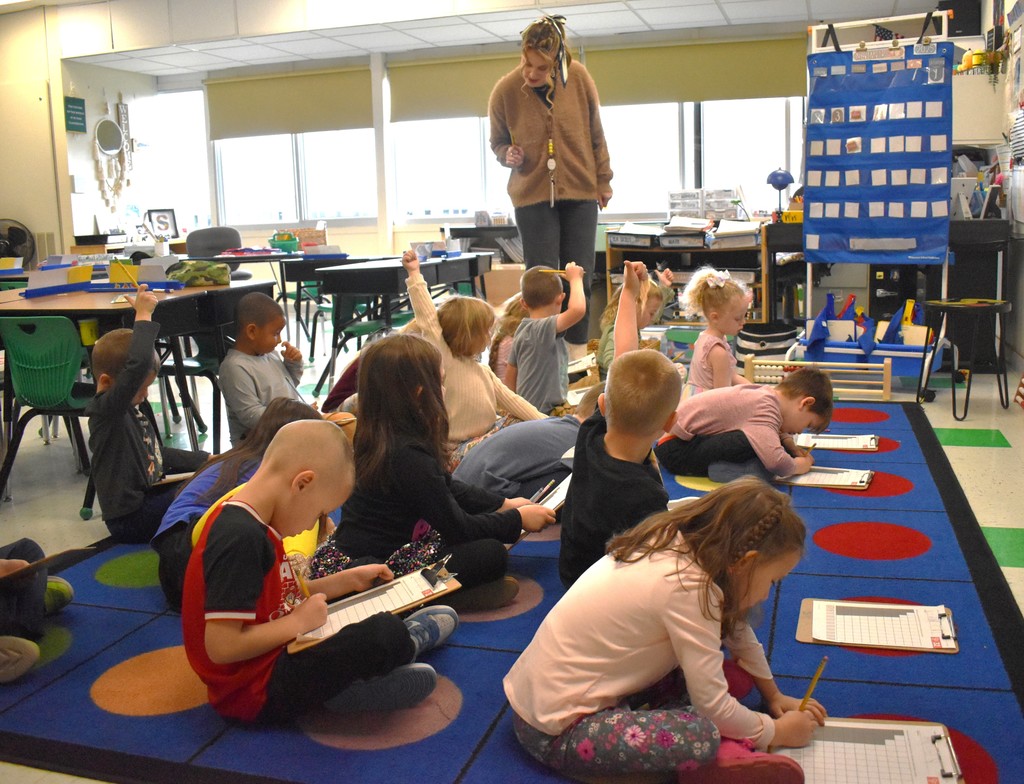
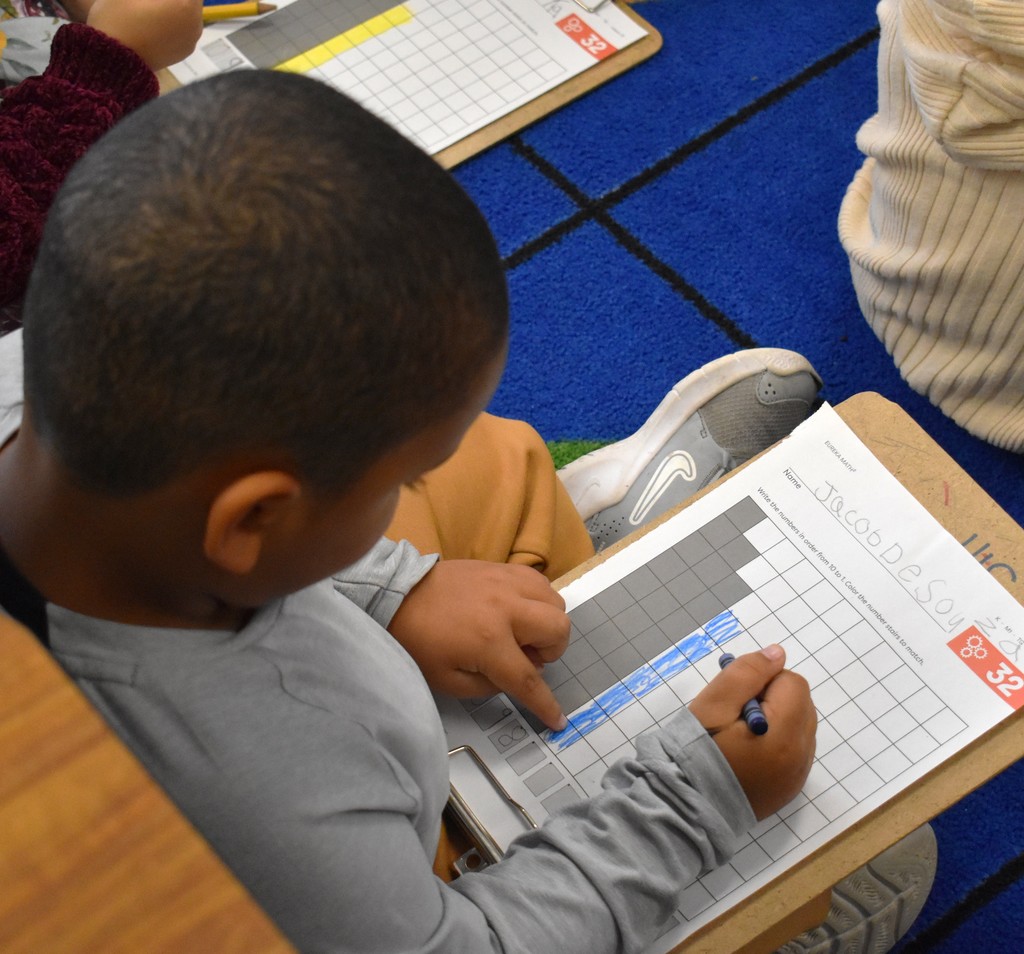
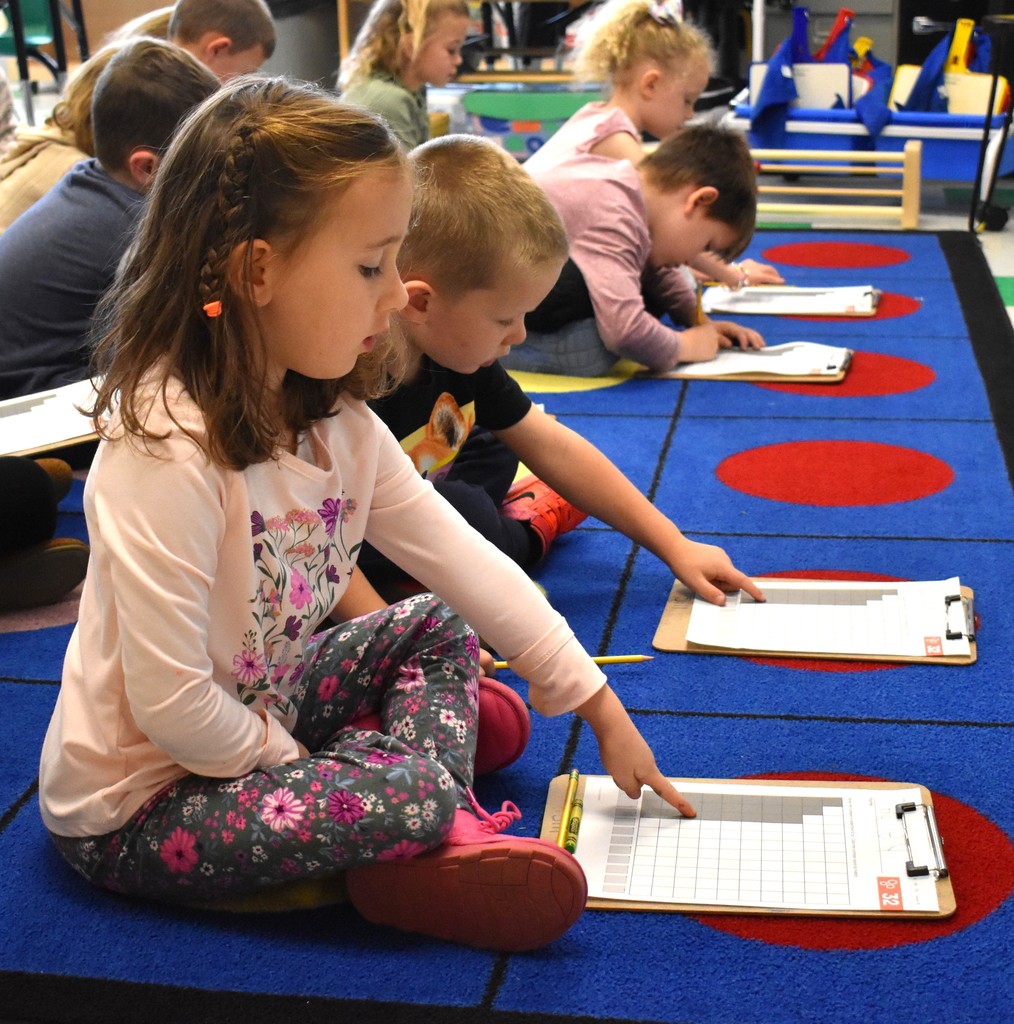
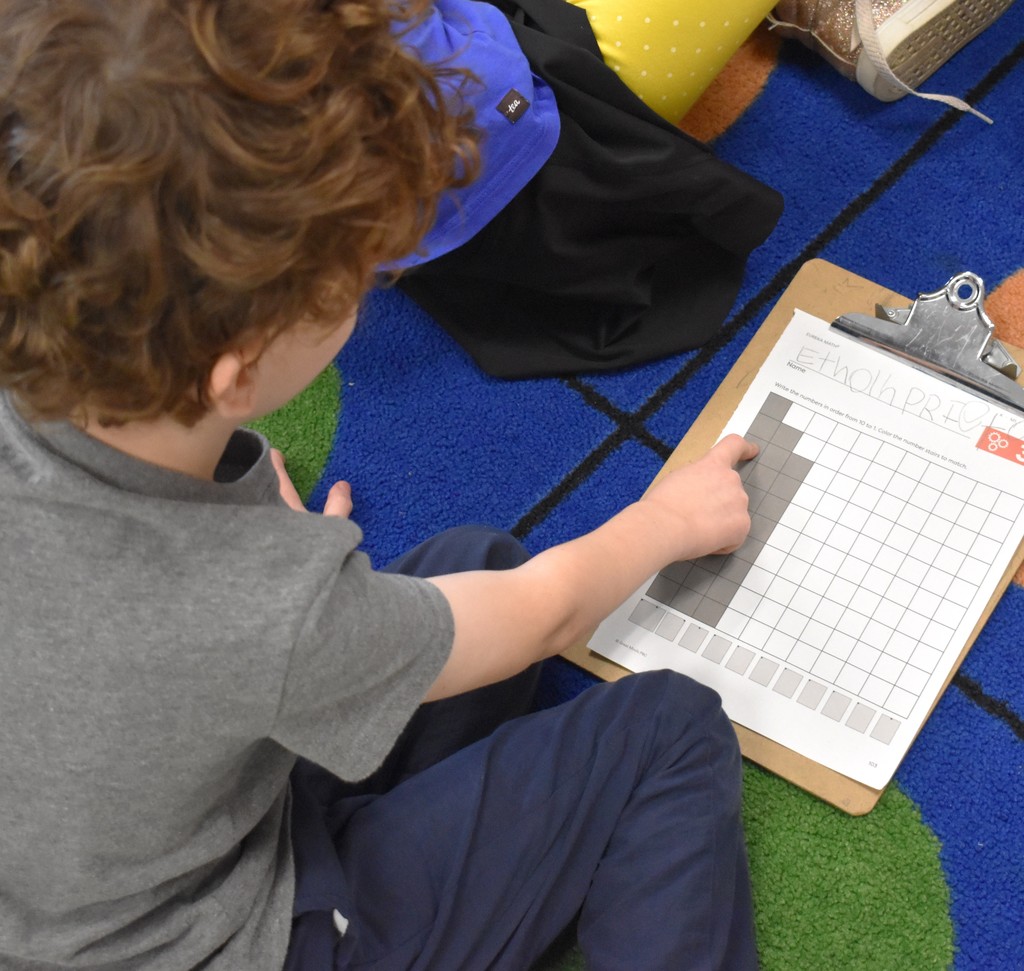
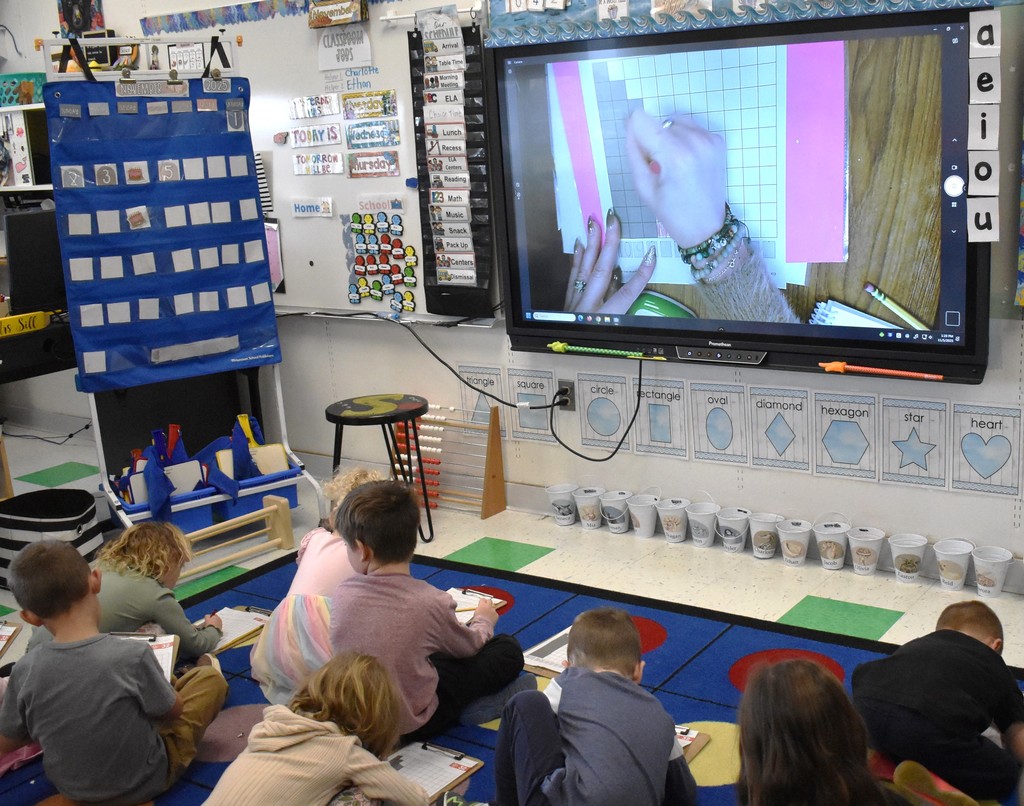
Did you know Minisink Valley’s Facebook page features thousands of great photos and information which show what’s going on at Otisville Elementary, Minisink Valley Elementary, Minisink Valley Intermediate School, Minisink Valley Middle School and Minisink Valley High School?
Over 8,400 people (and growing!) in the greater Minisink Valley area “follow” the district’s page. Join them! It’s a great source of information!
Visit the district's Facebook page and be sure to “like” us: https://www.facebook.com/MinisinkValleyCSD

Jonathan Sakadelis has been introducing his ES kindergarten physical education students to soccer! They've been learning how to move the ball down the field by playing a game we all know: "Red Light, Green Light, 1, 2,3!" Plus, they've been learning how to trap, or stop, the ball. These cutie-pies are doing really good as novice beginners, too! There's probably some future varsity players in this group!

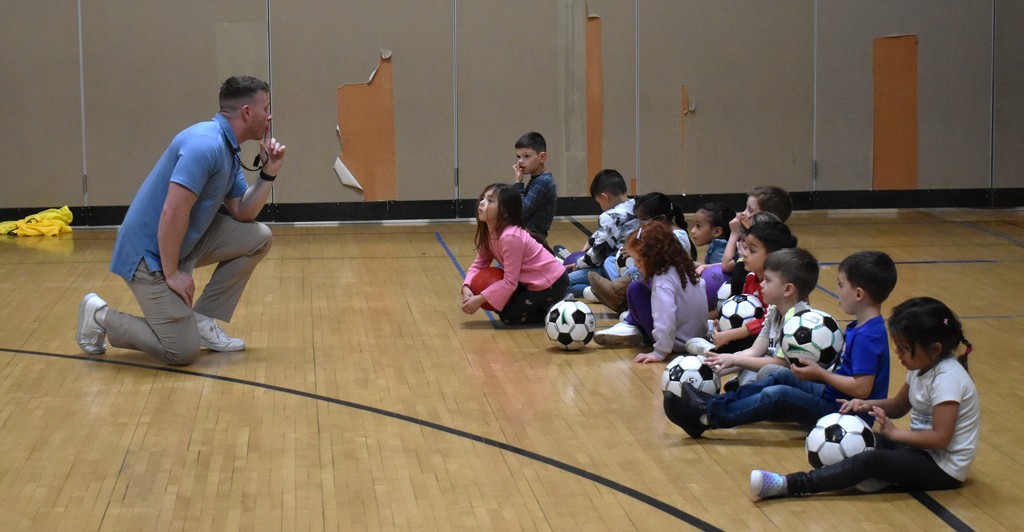

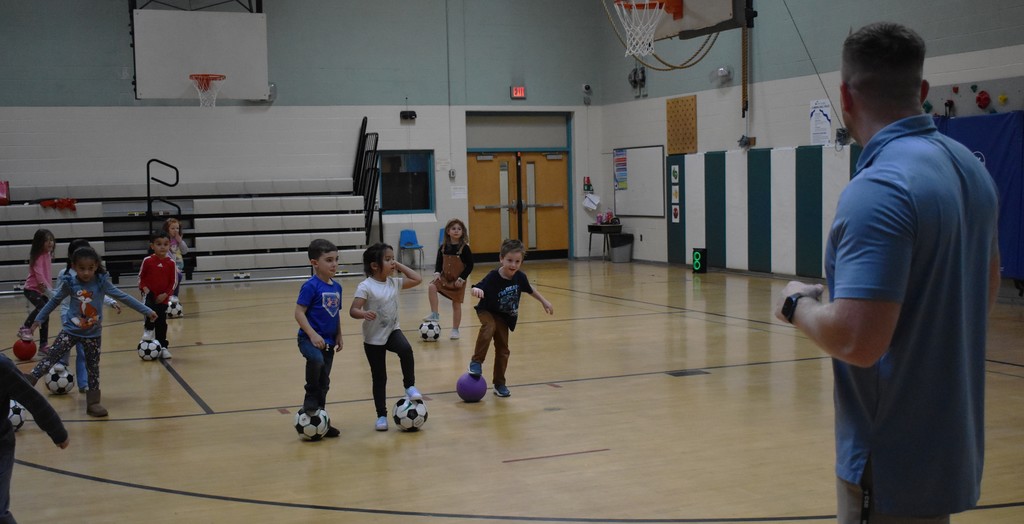
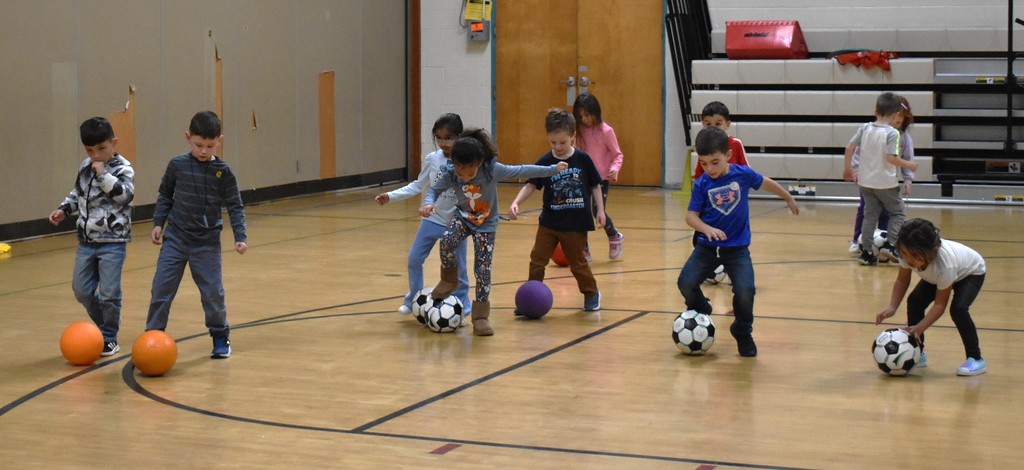
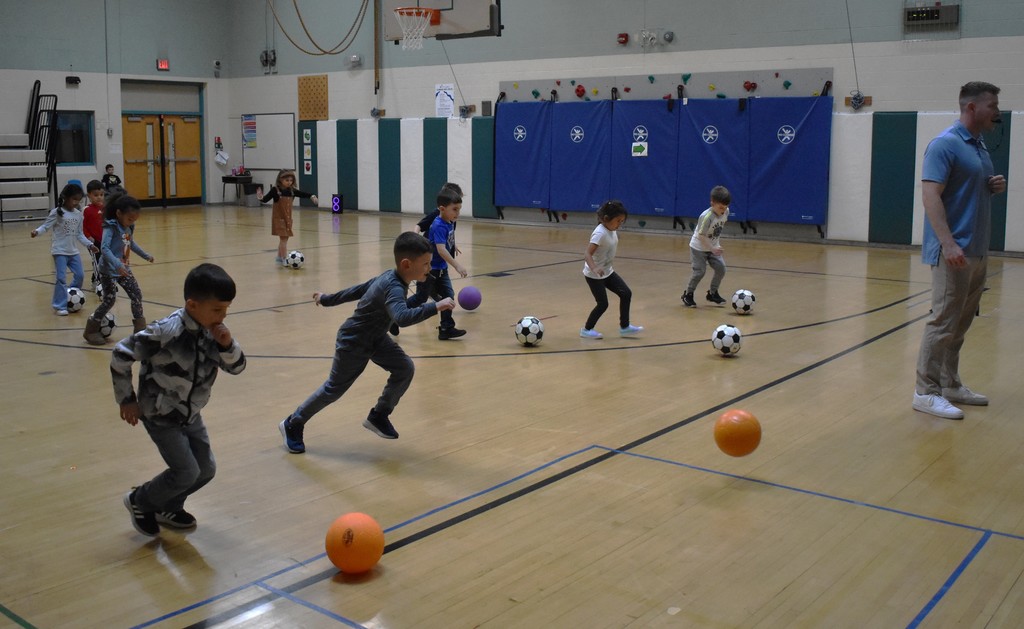
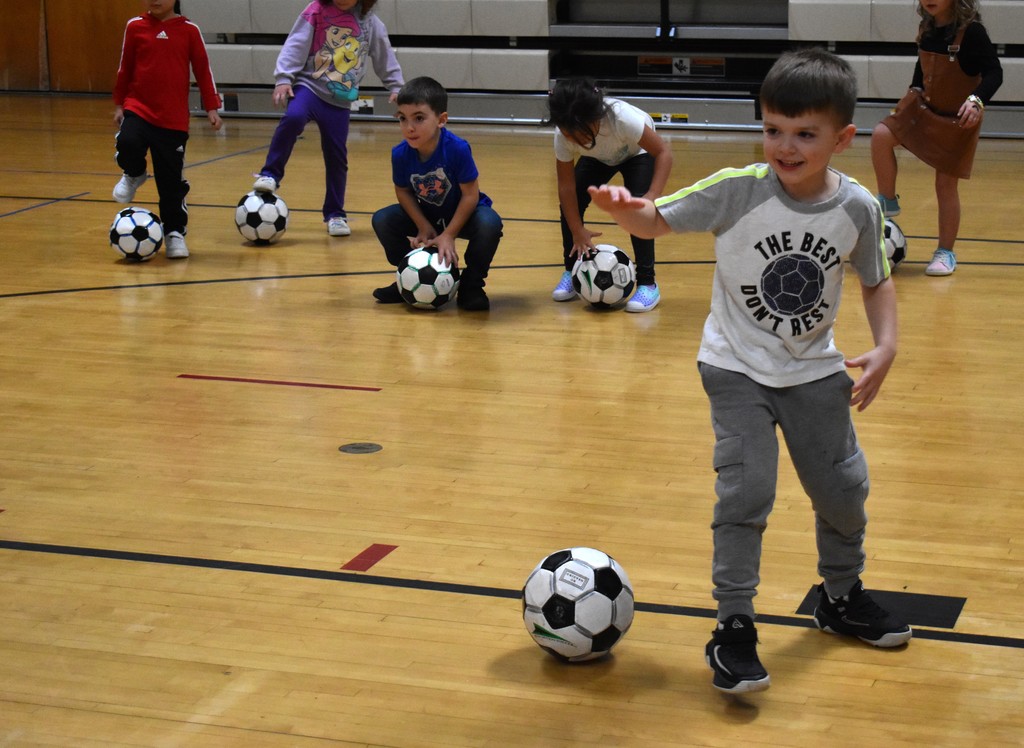
As they progress in this work, students will be moving toward regrouping and borrowing when adding and subtracting. Right now, they been practicing bundling groups of 10s and moving them to the appropriate place value to accurately represent the number. This practice of unbundling and bundling numbers becomes the baseline for addition and subtraction strategies.
An HTO chart is a place value chart used in elementary education with columns for “hundreds,” “tens,” and “ones” to help students visualize and understand numbers. It’s a foundational tool for teaching concepts like addition, subtraction, and multiplication by showing how numbers are composed and how regrouping works (i.e.: trading 10 ones for a 10).
